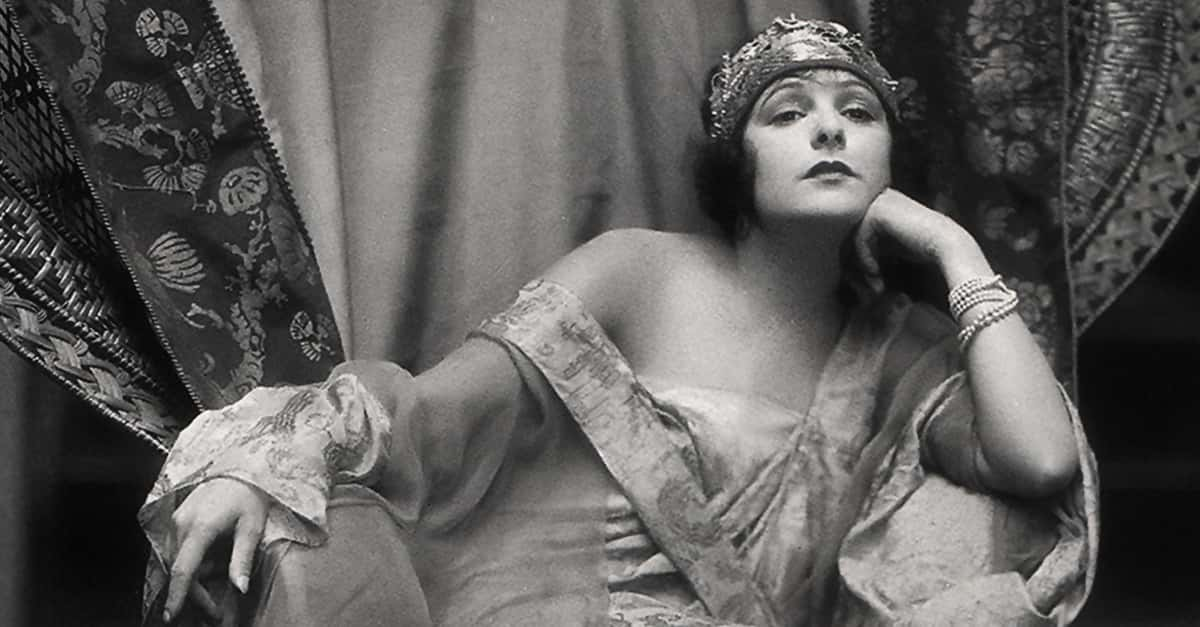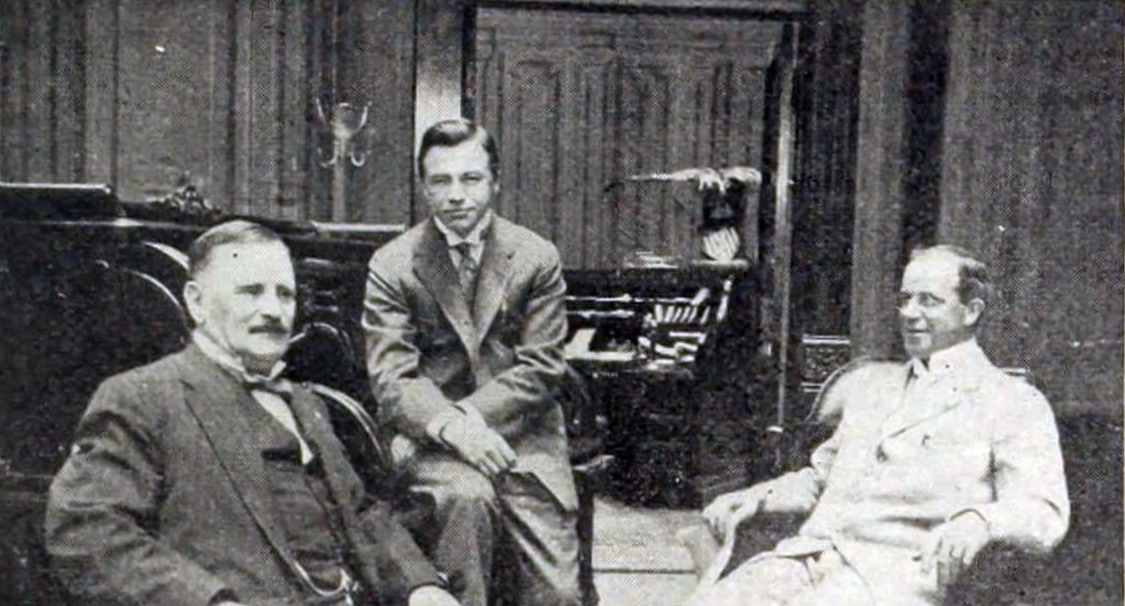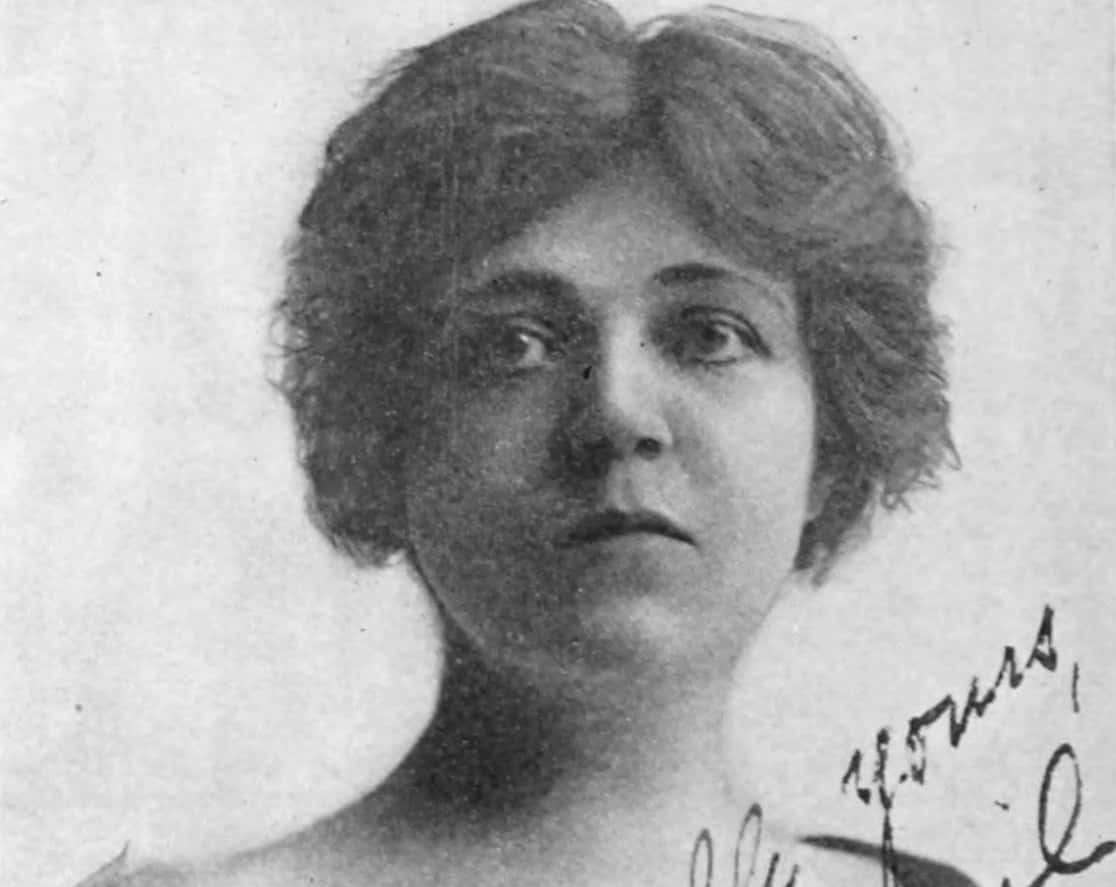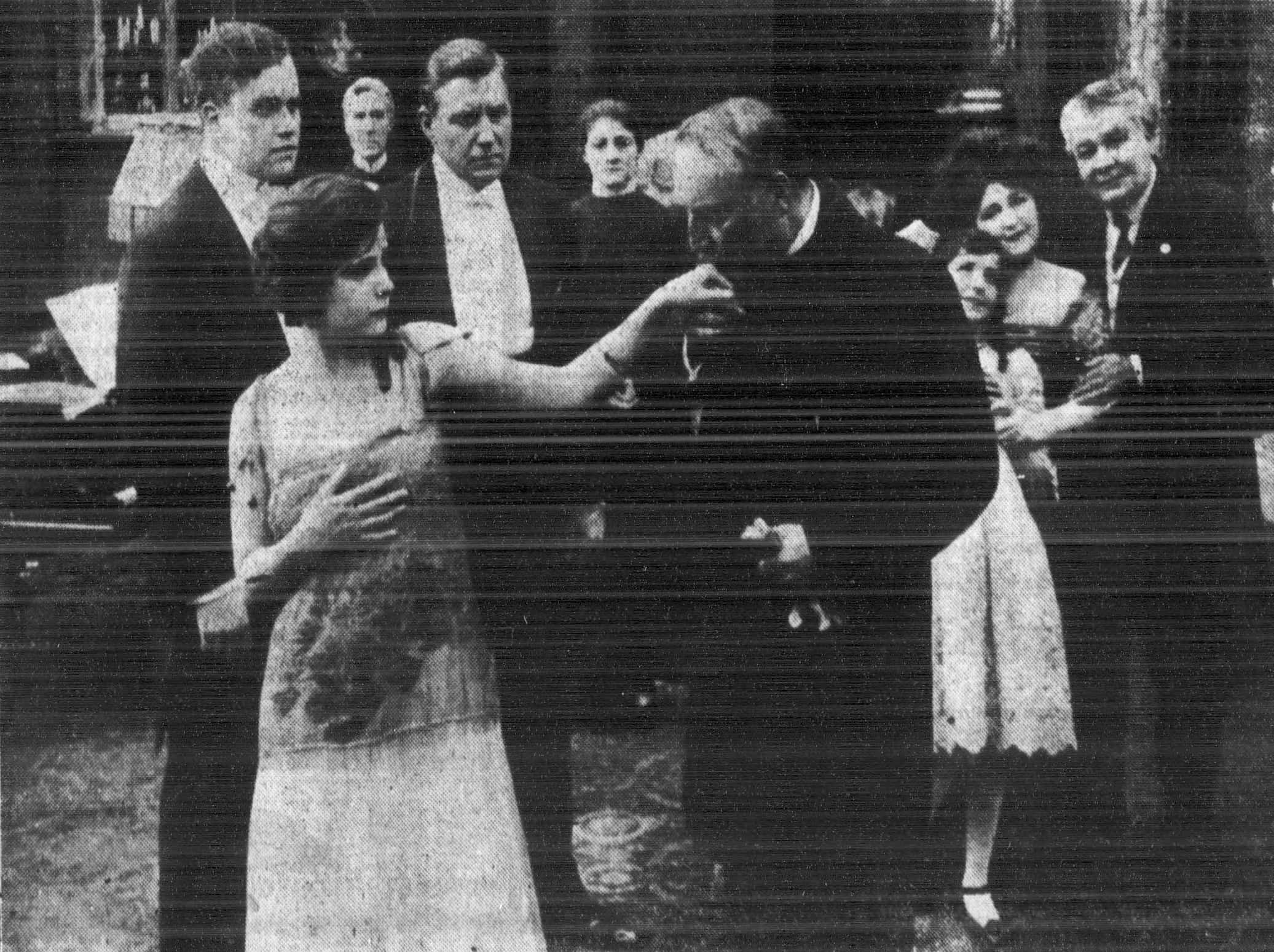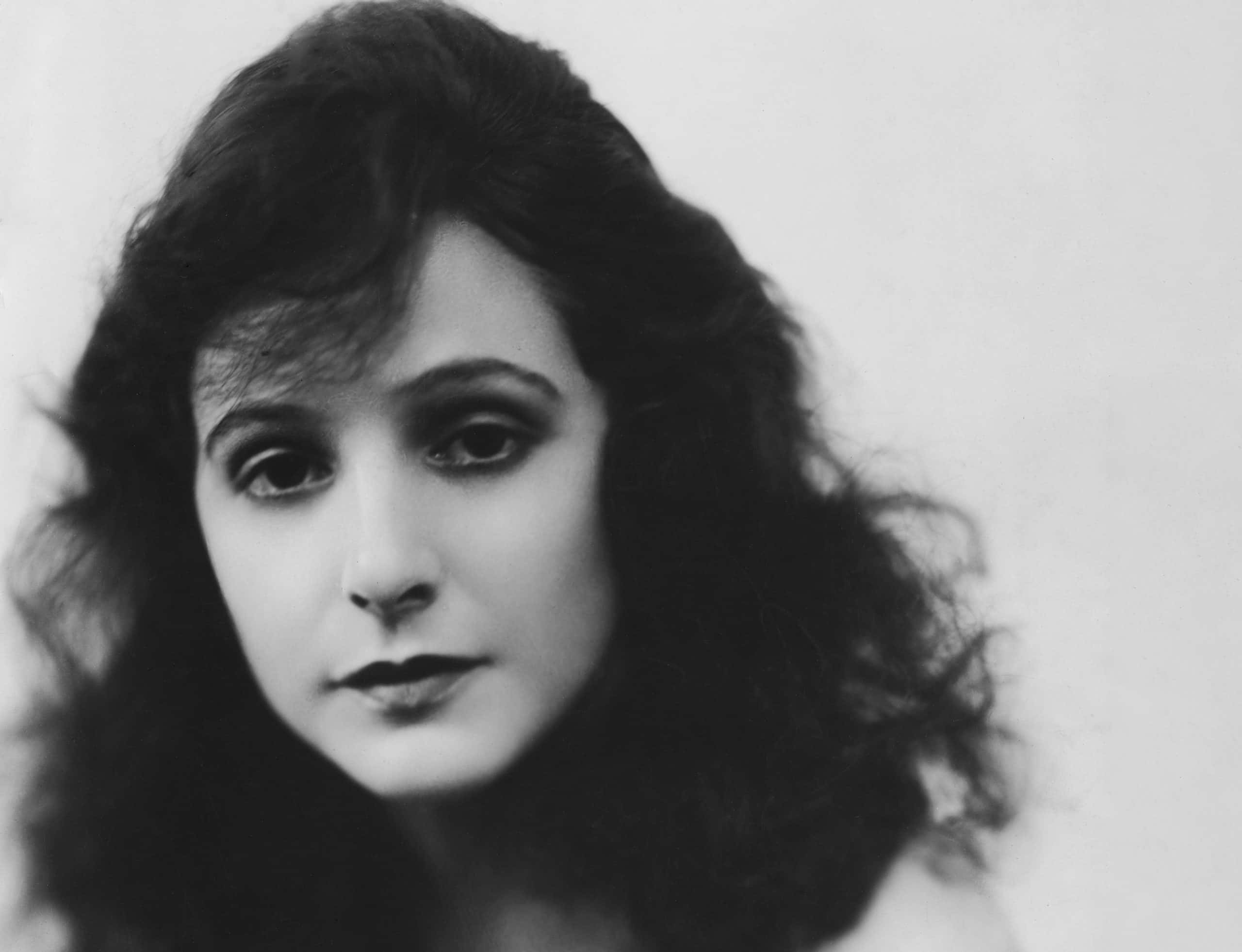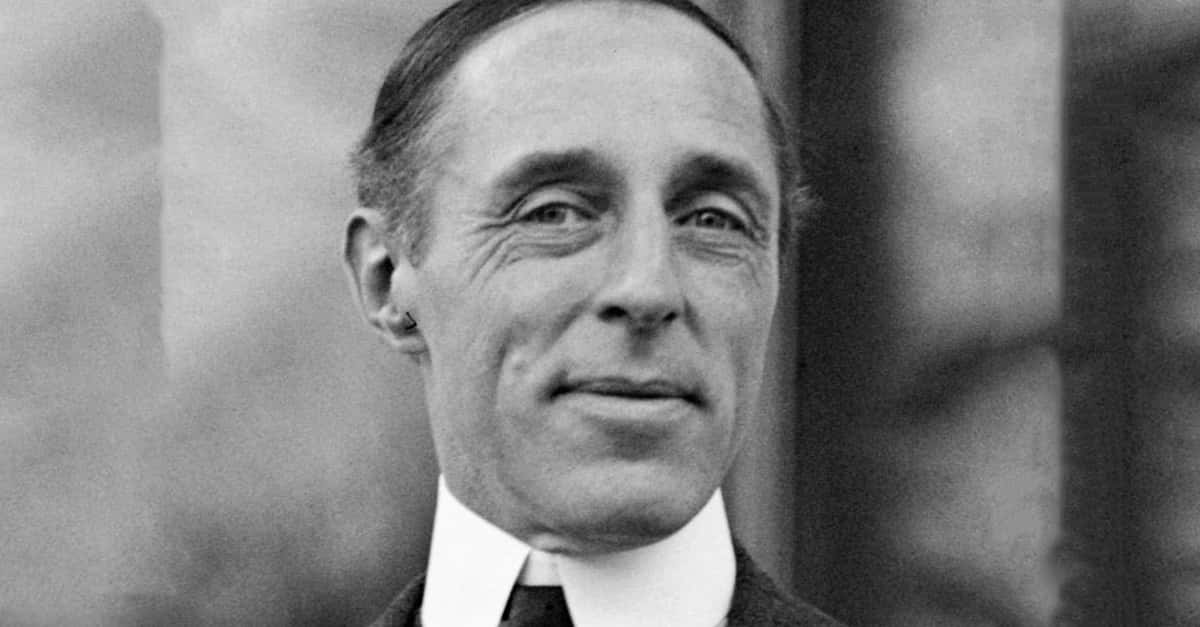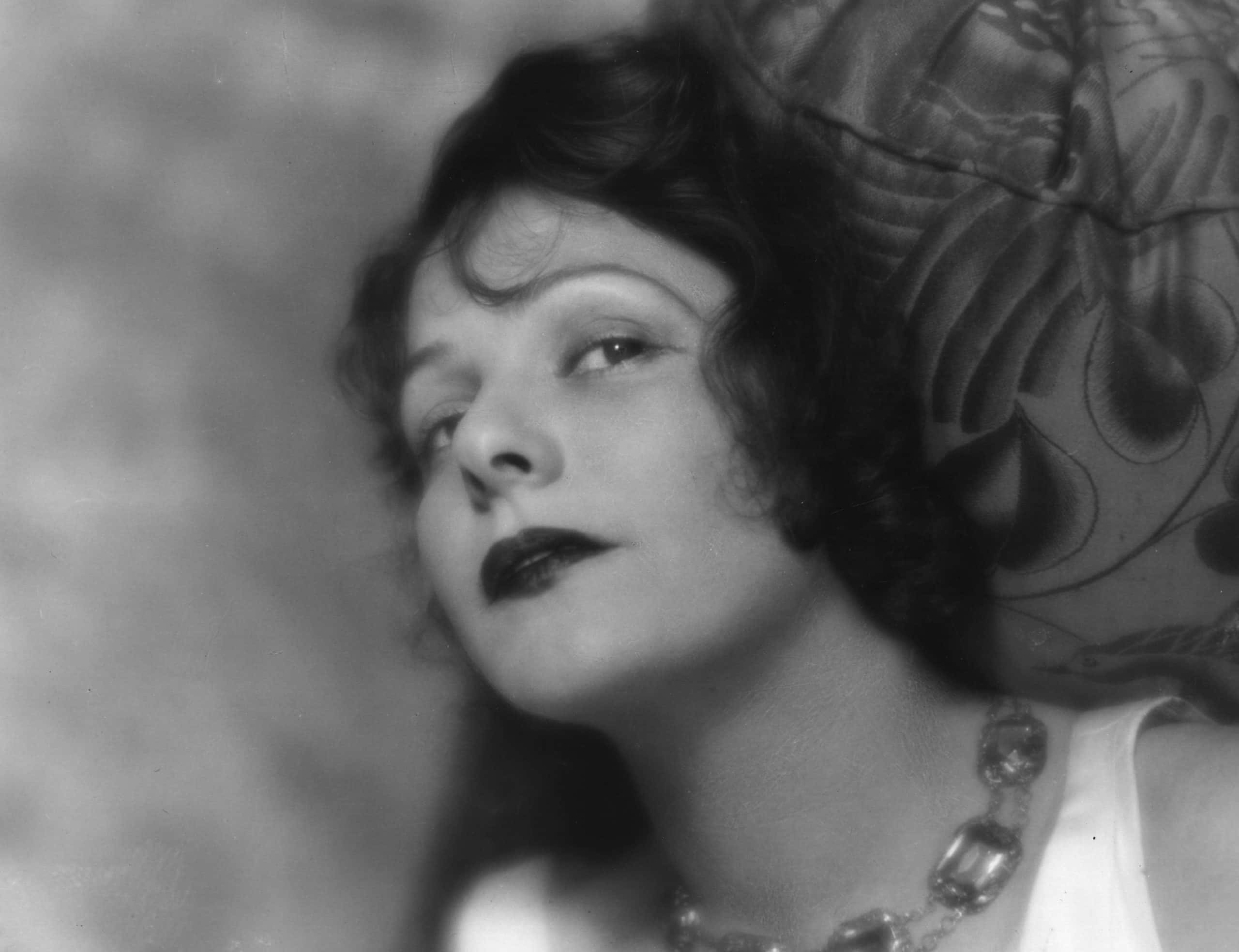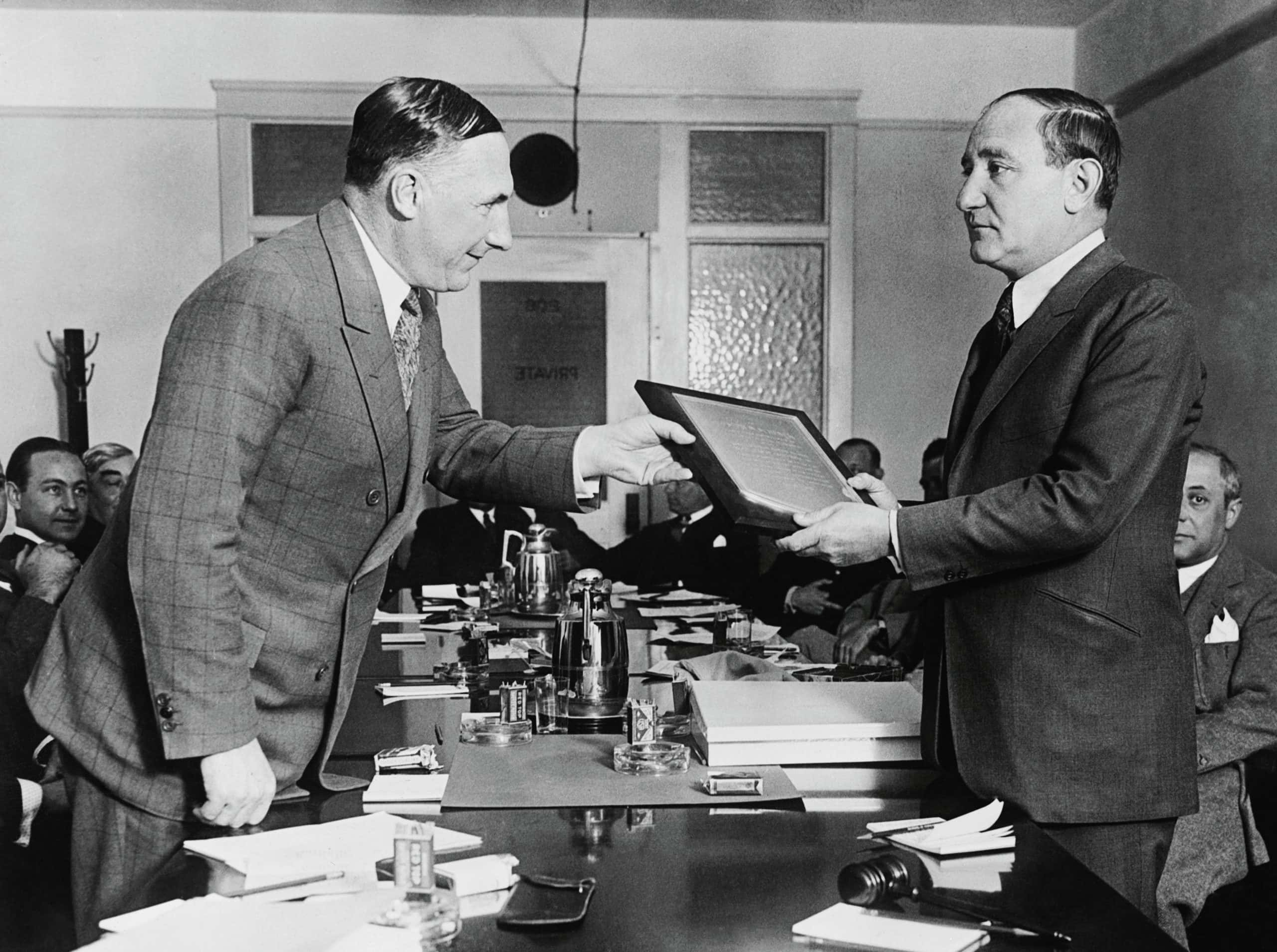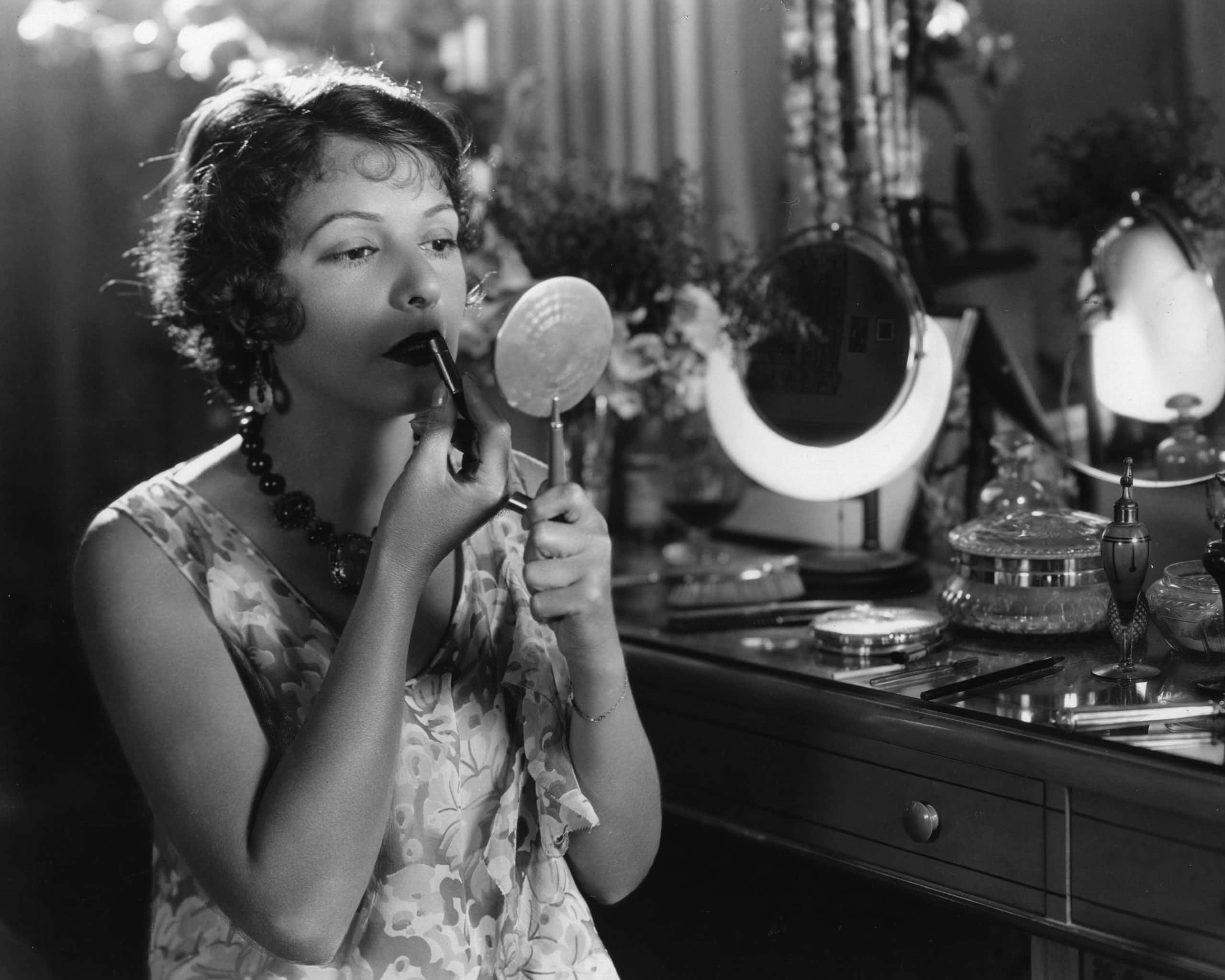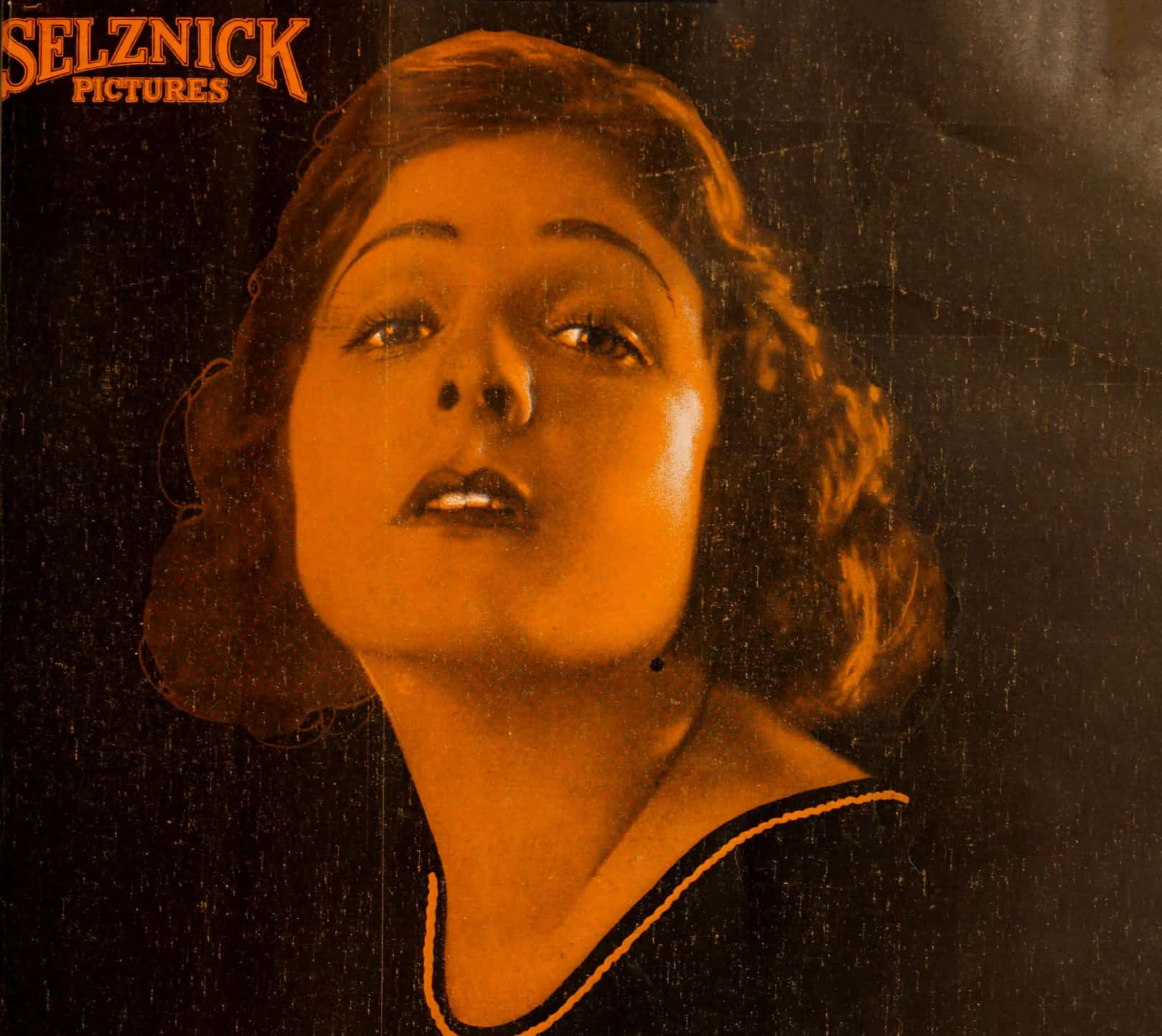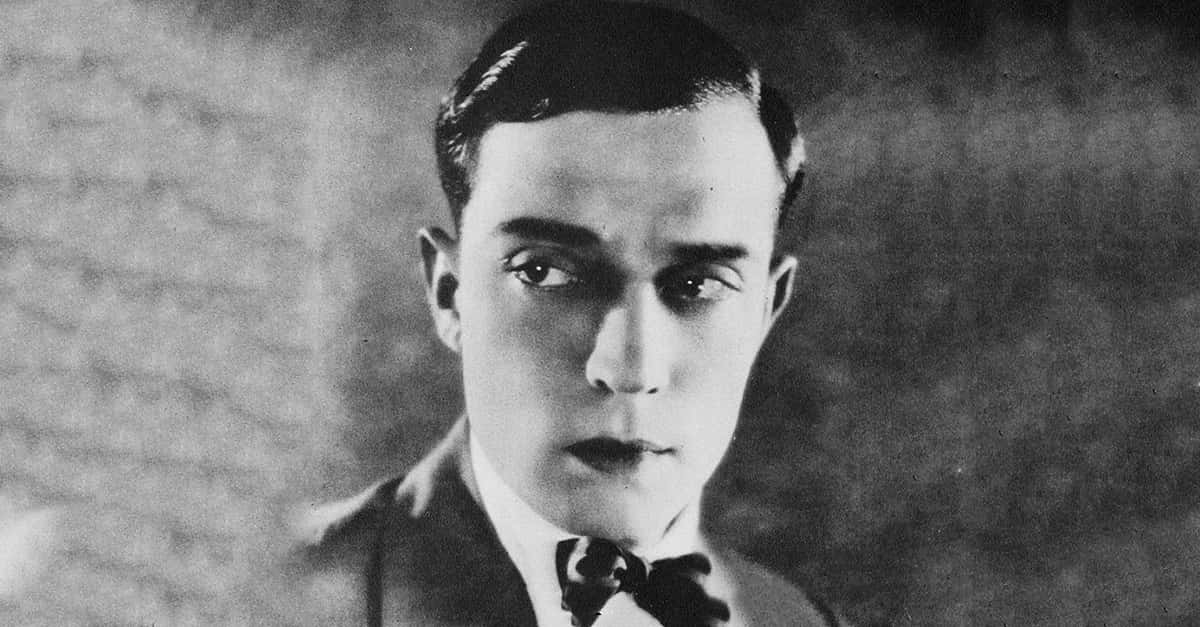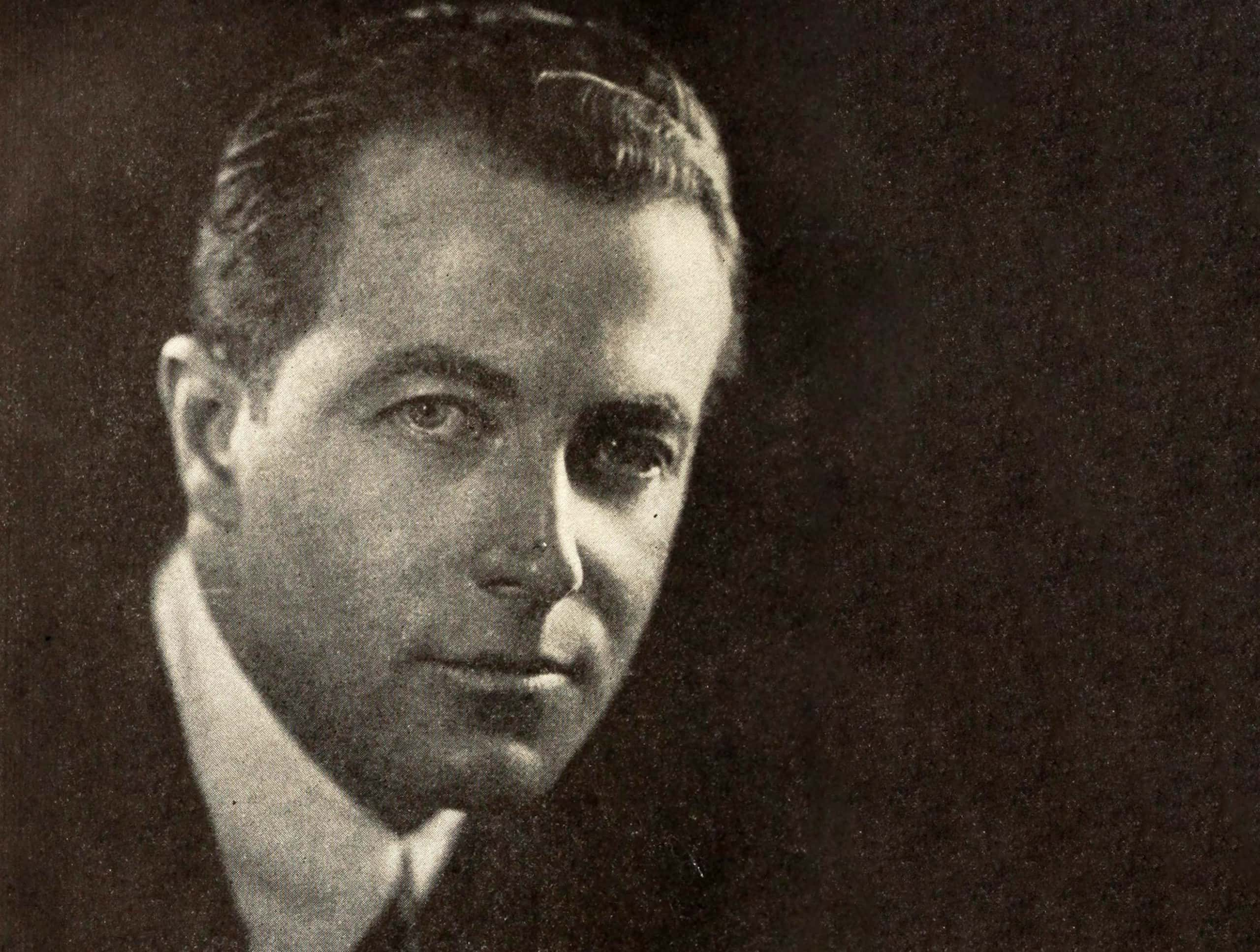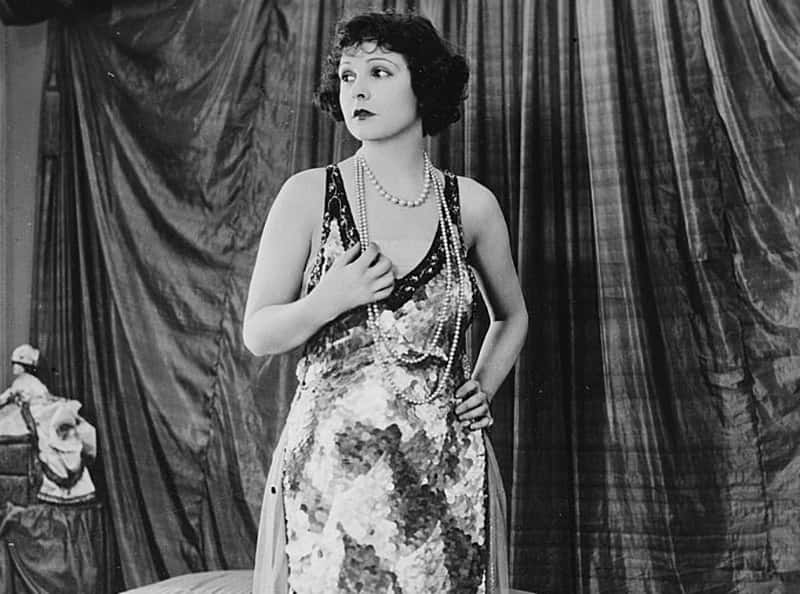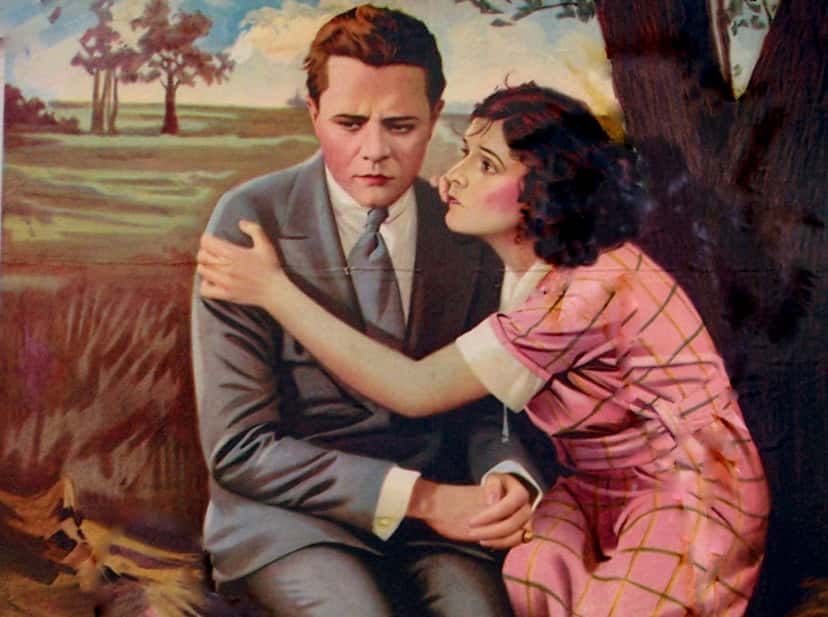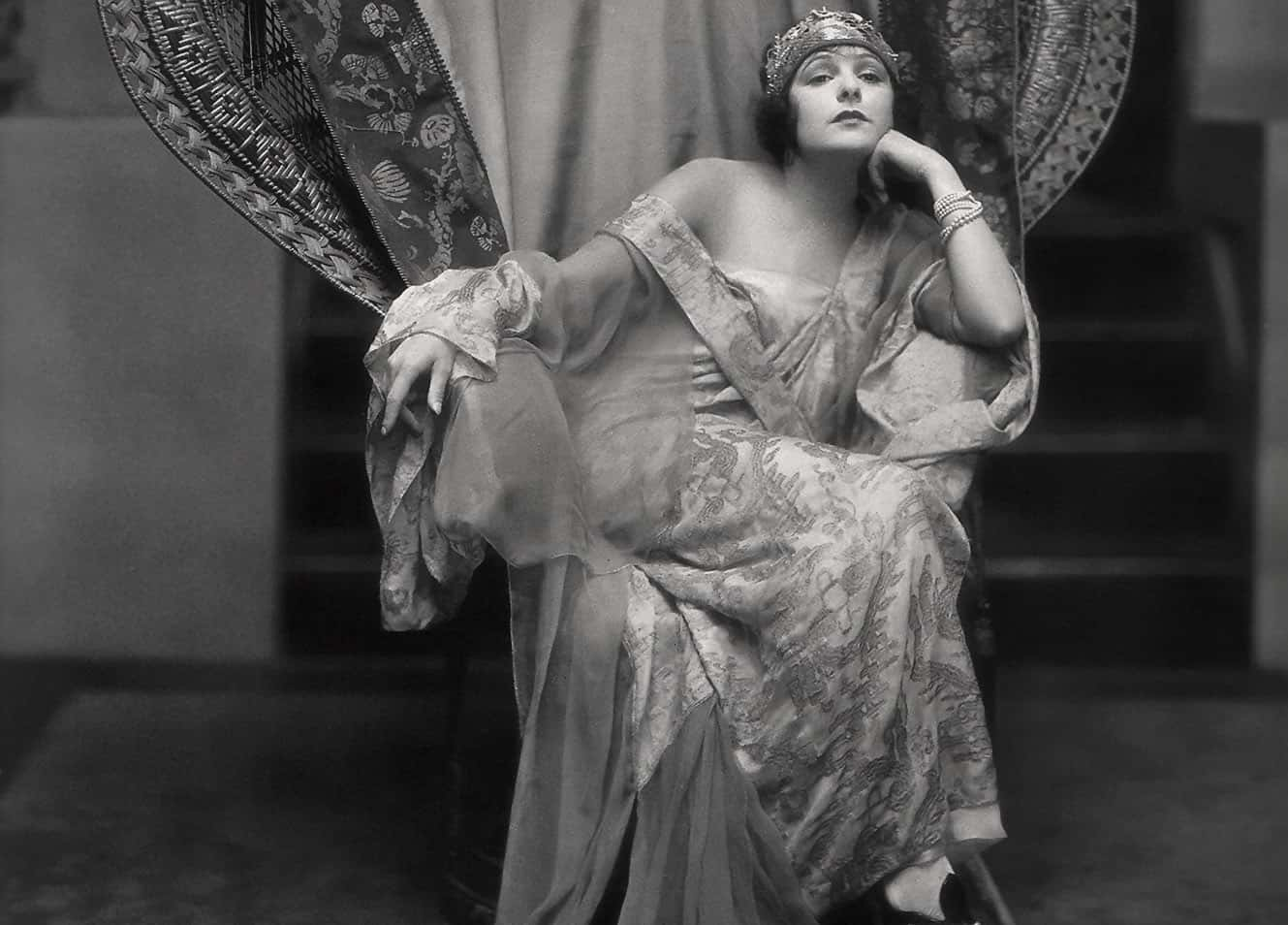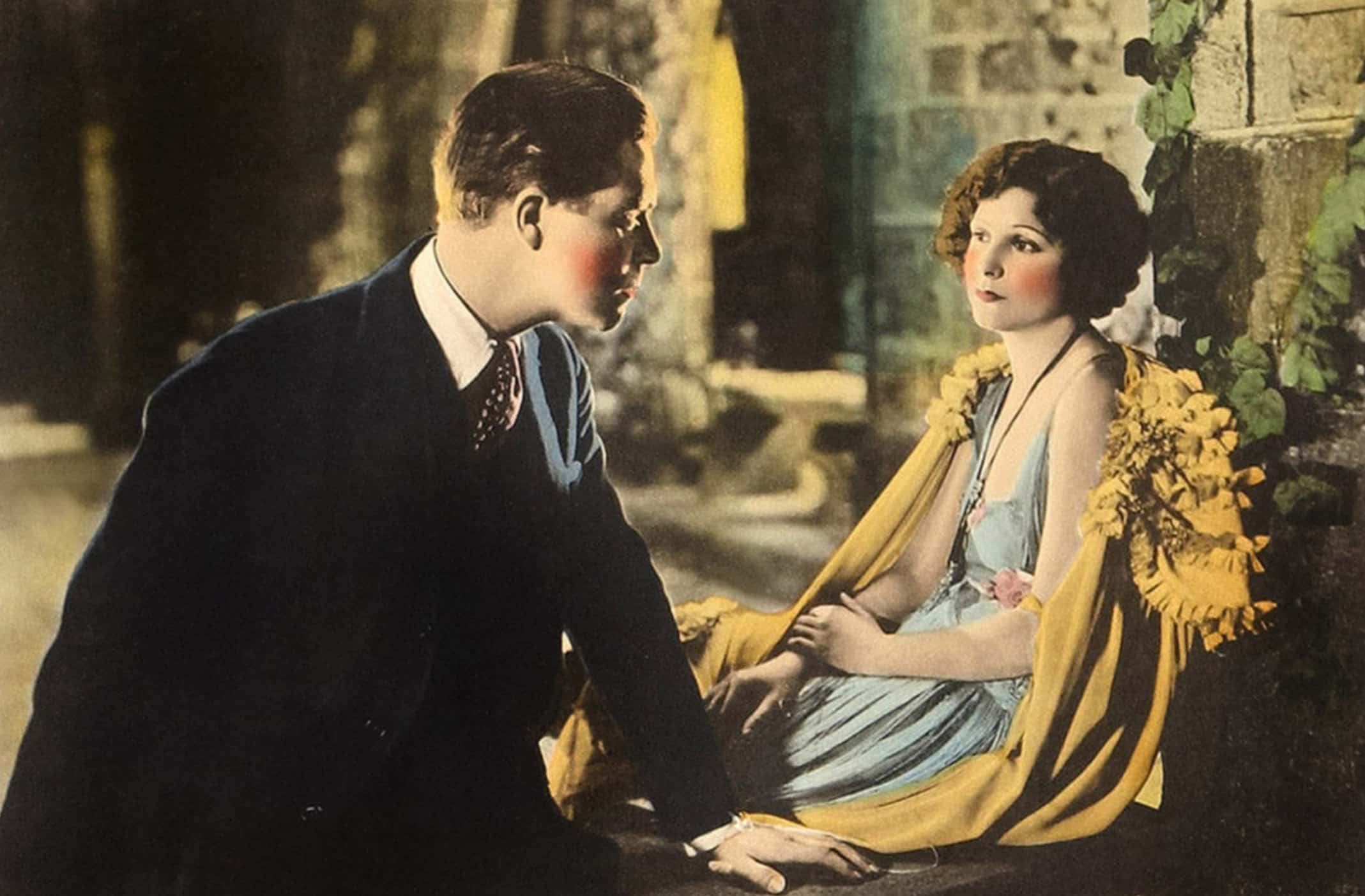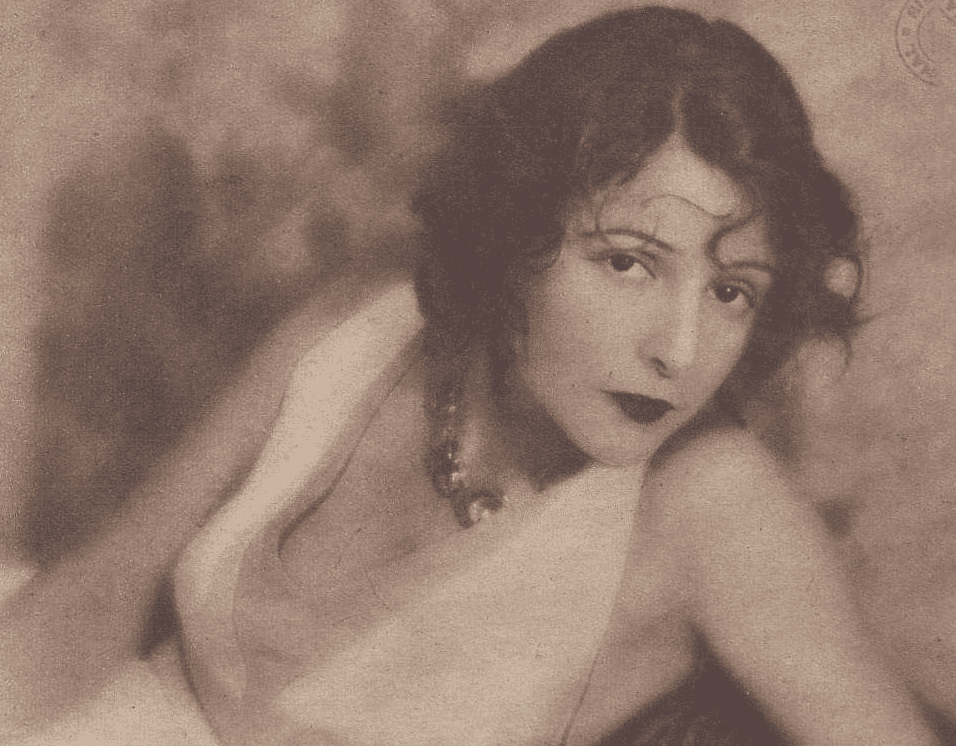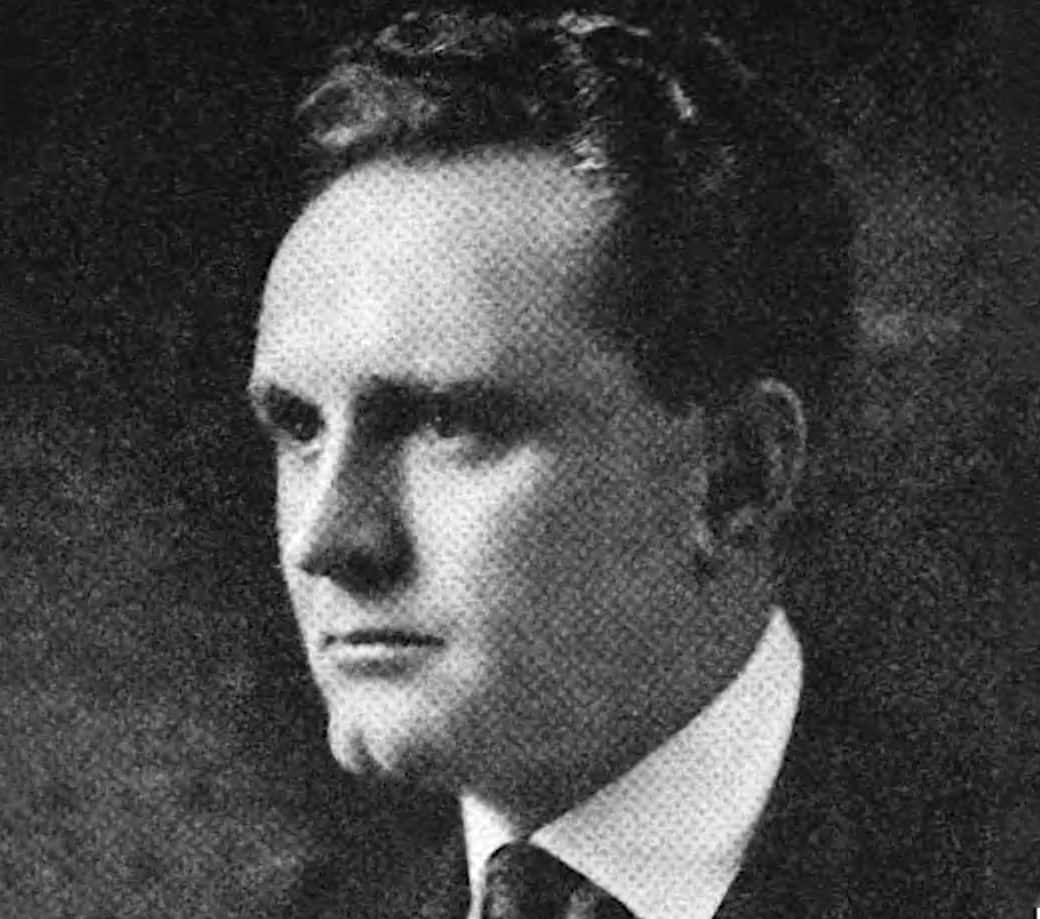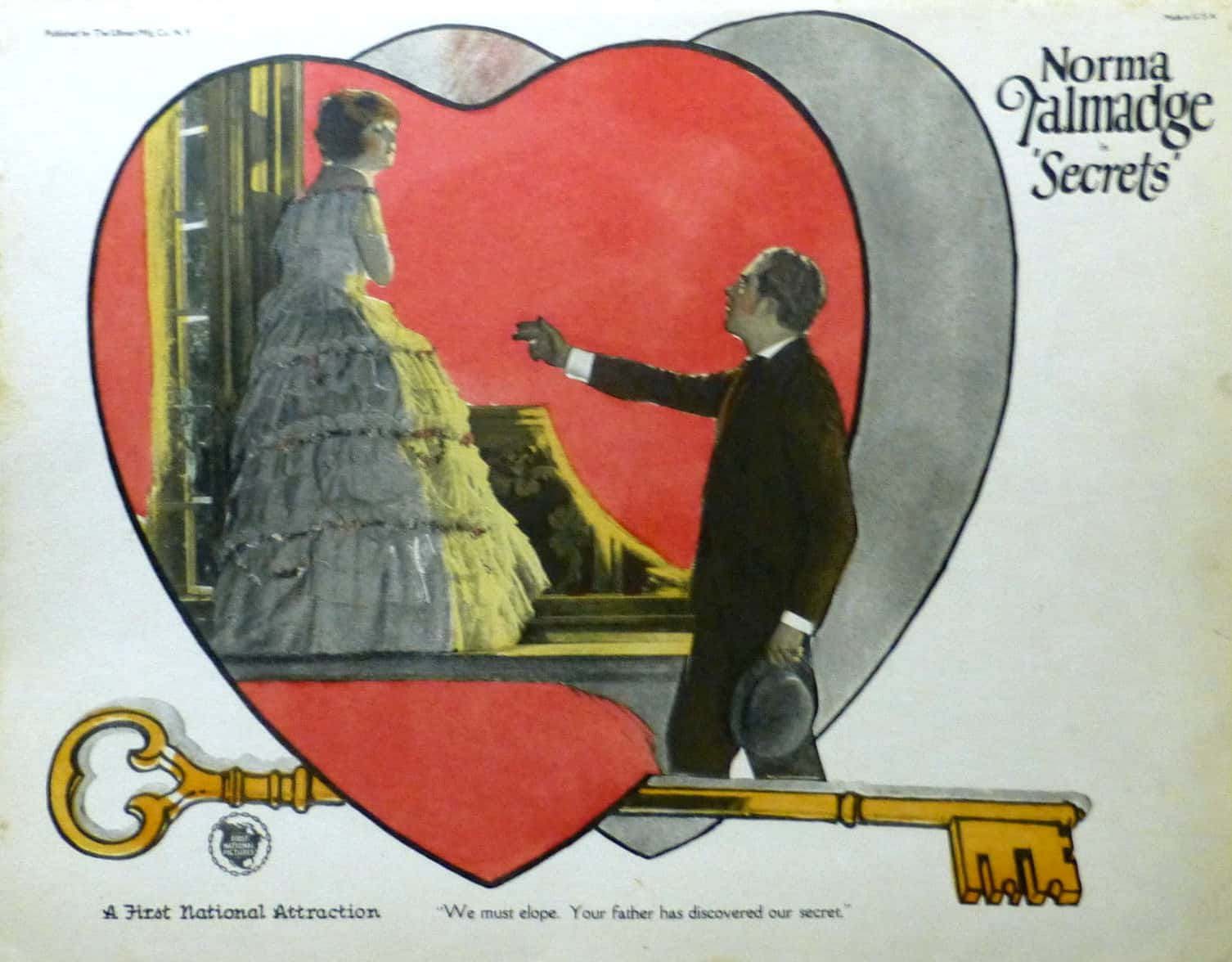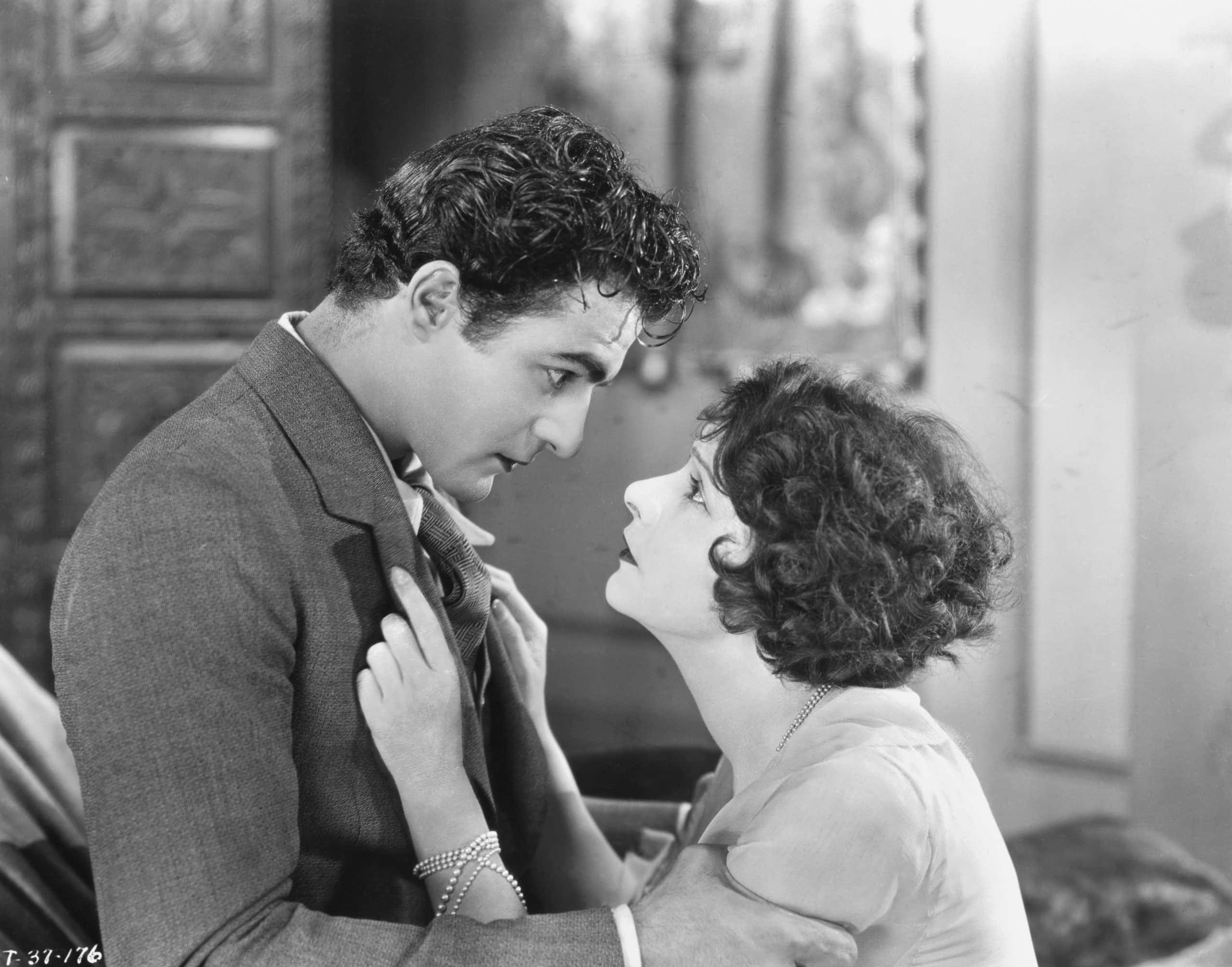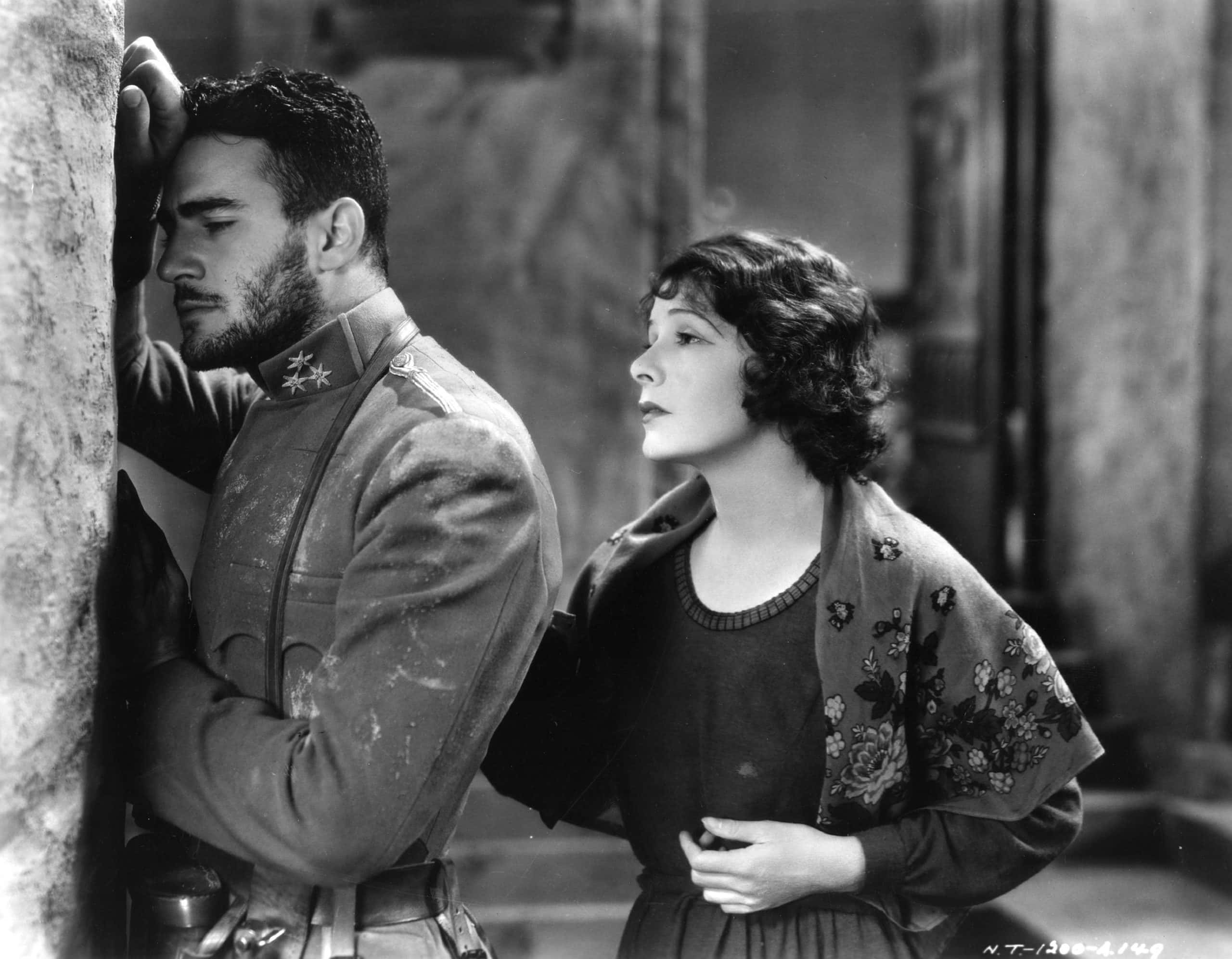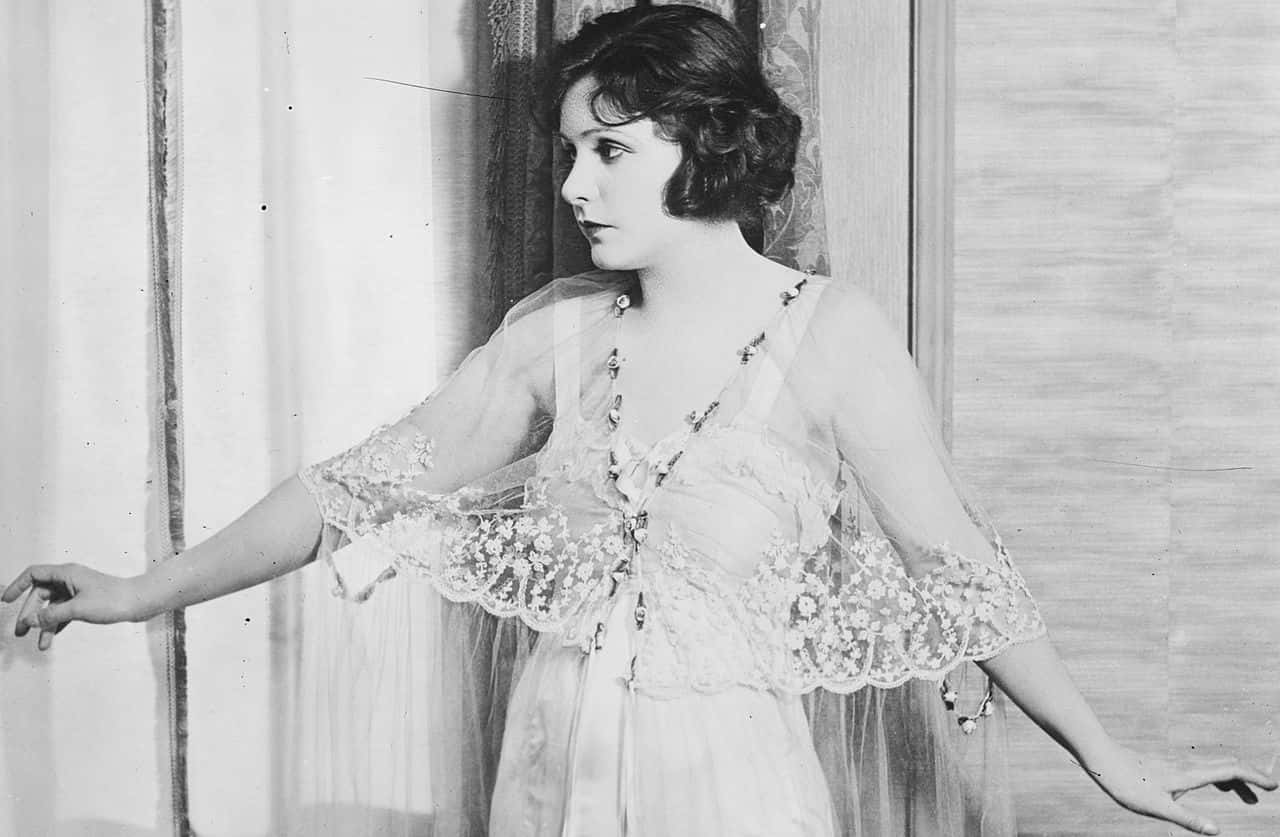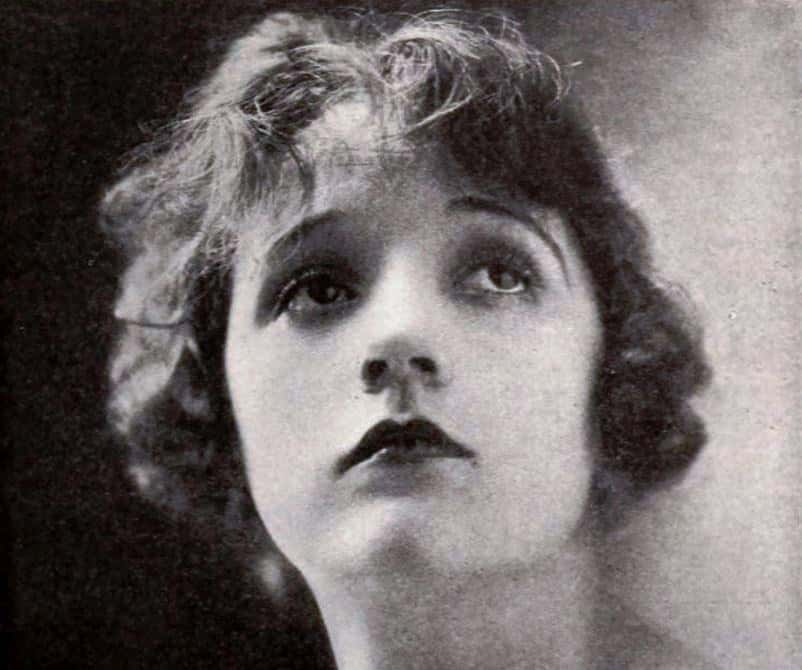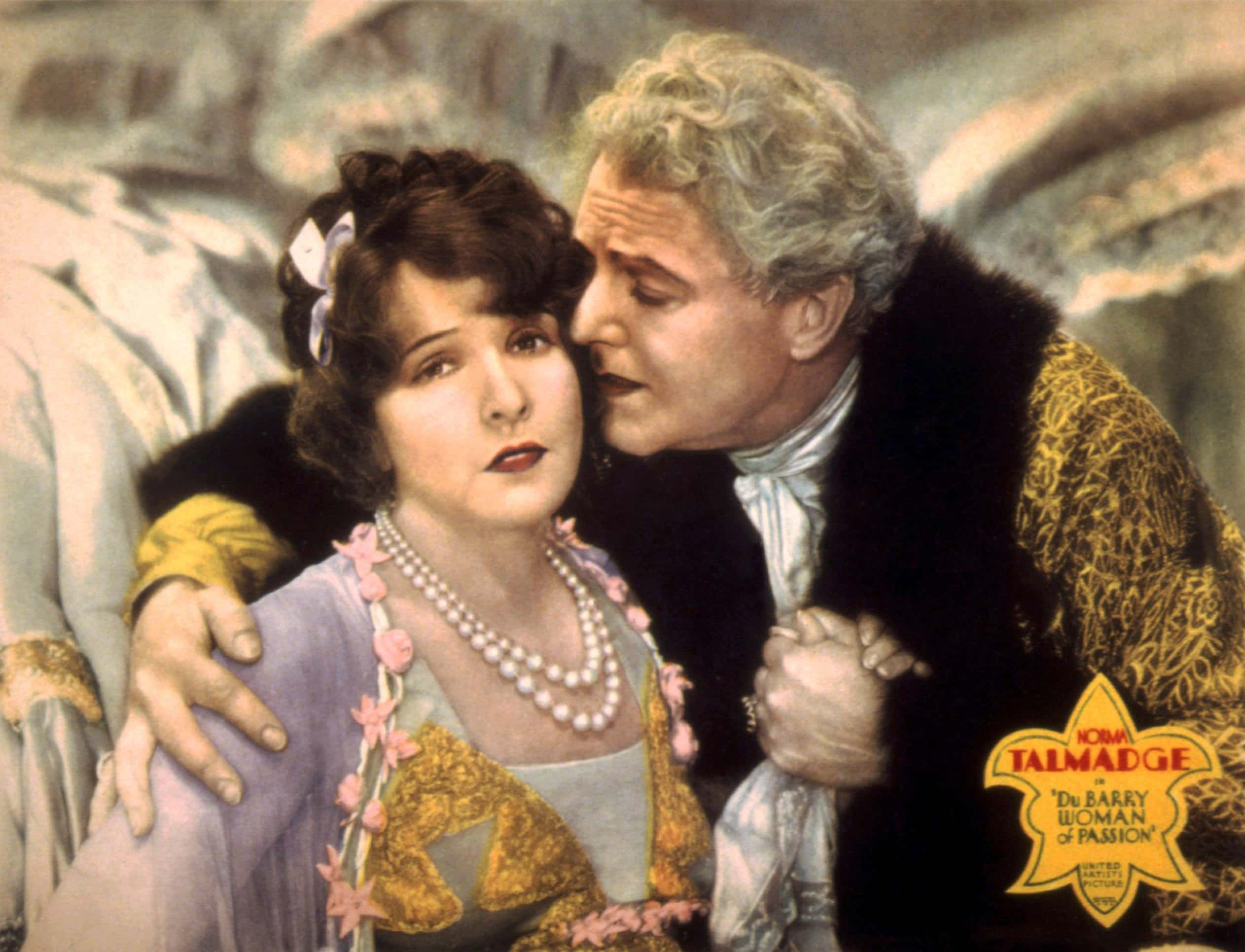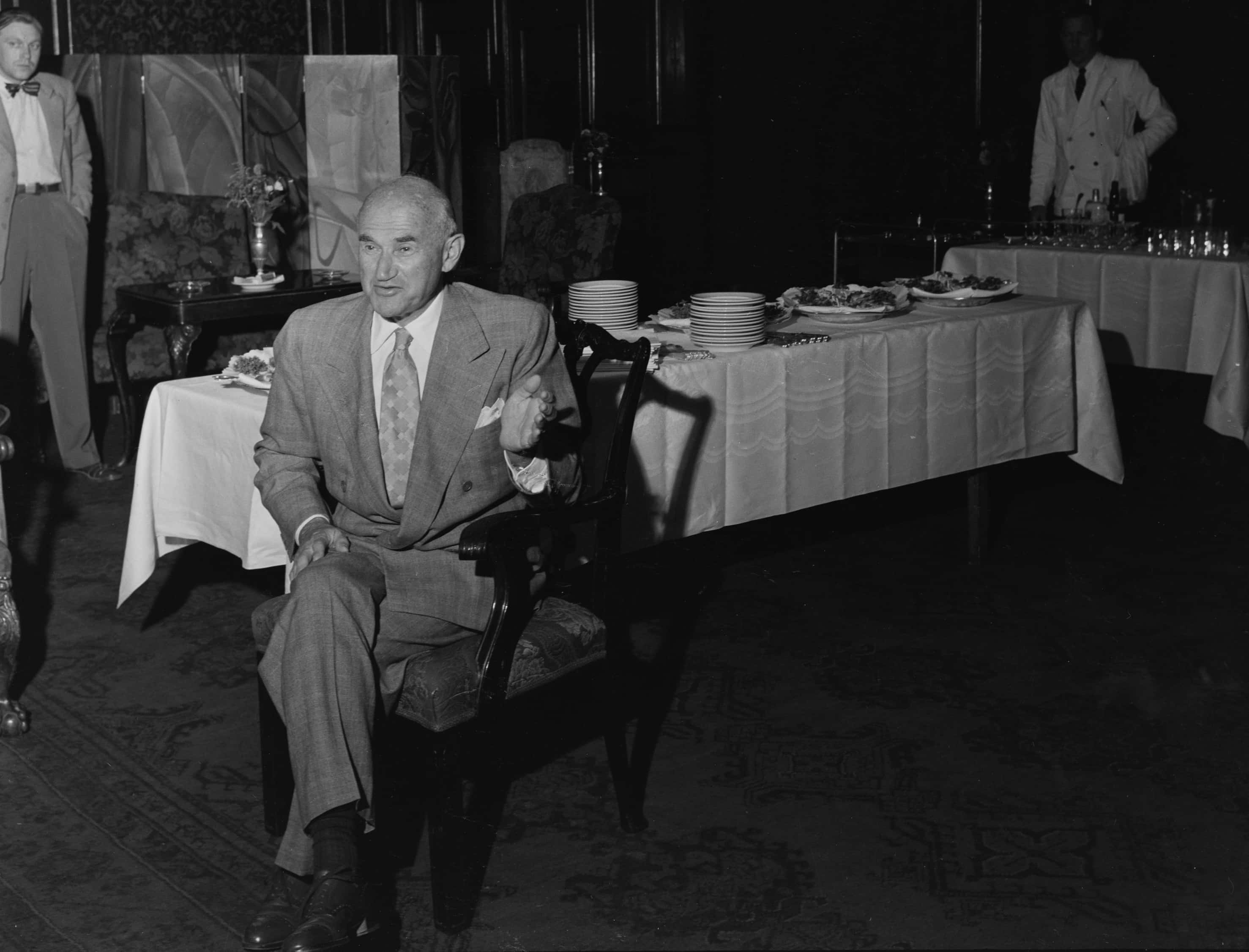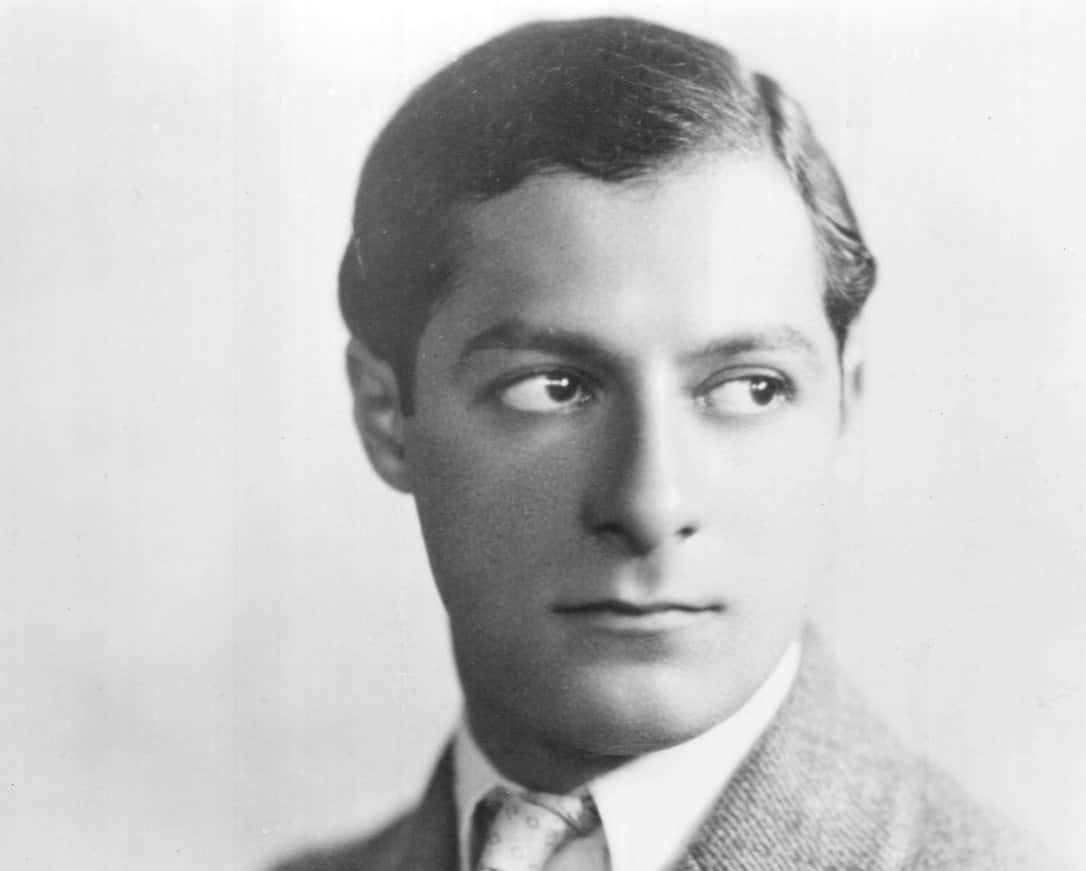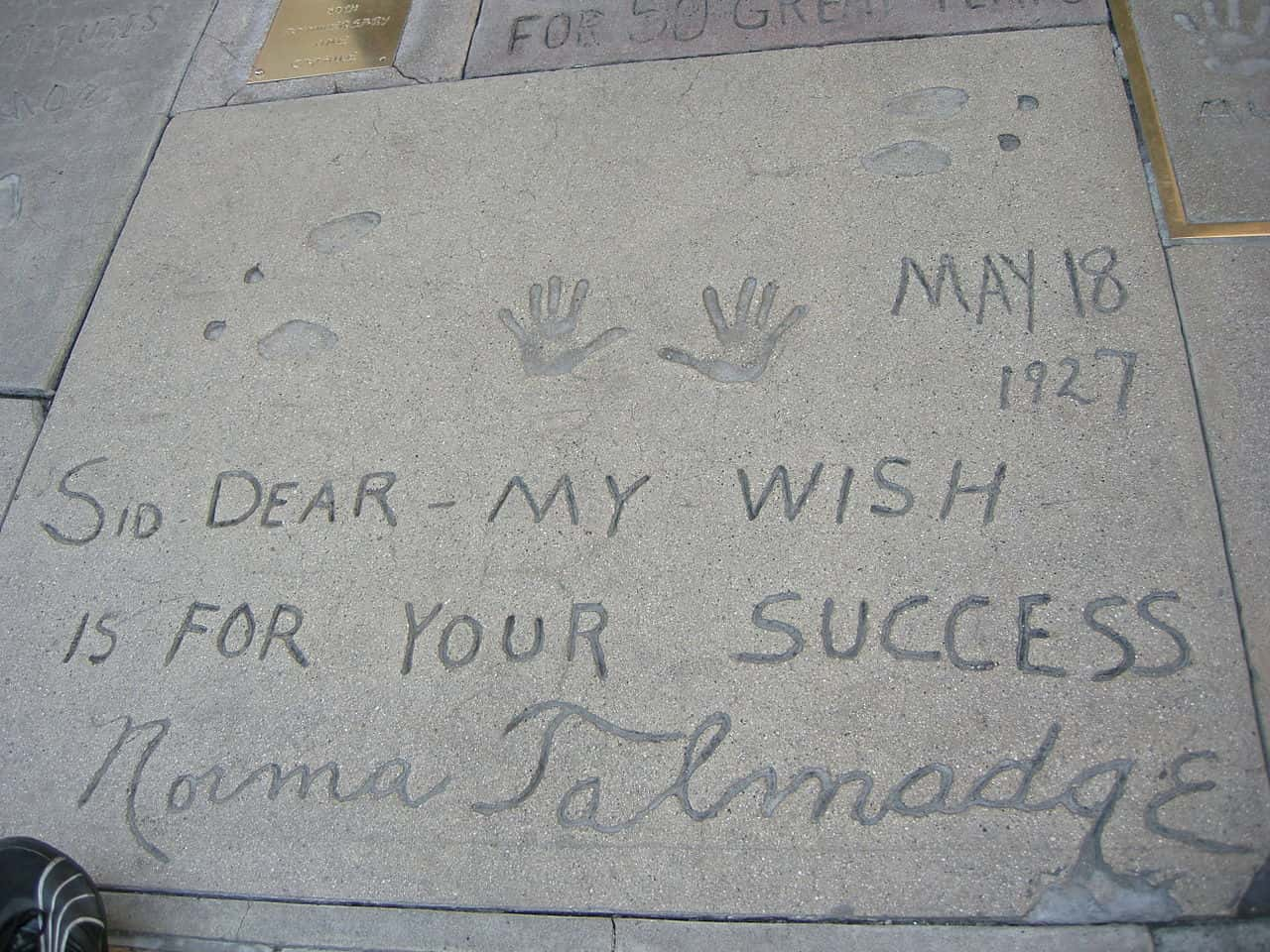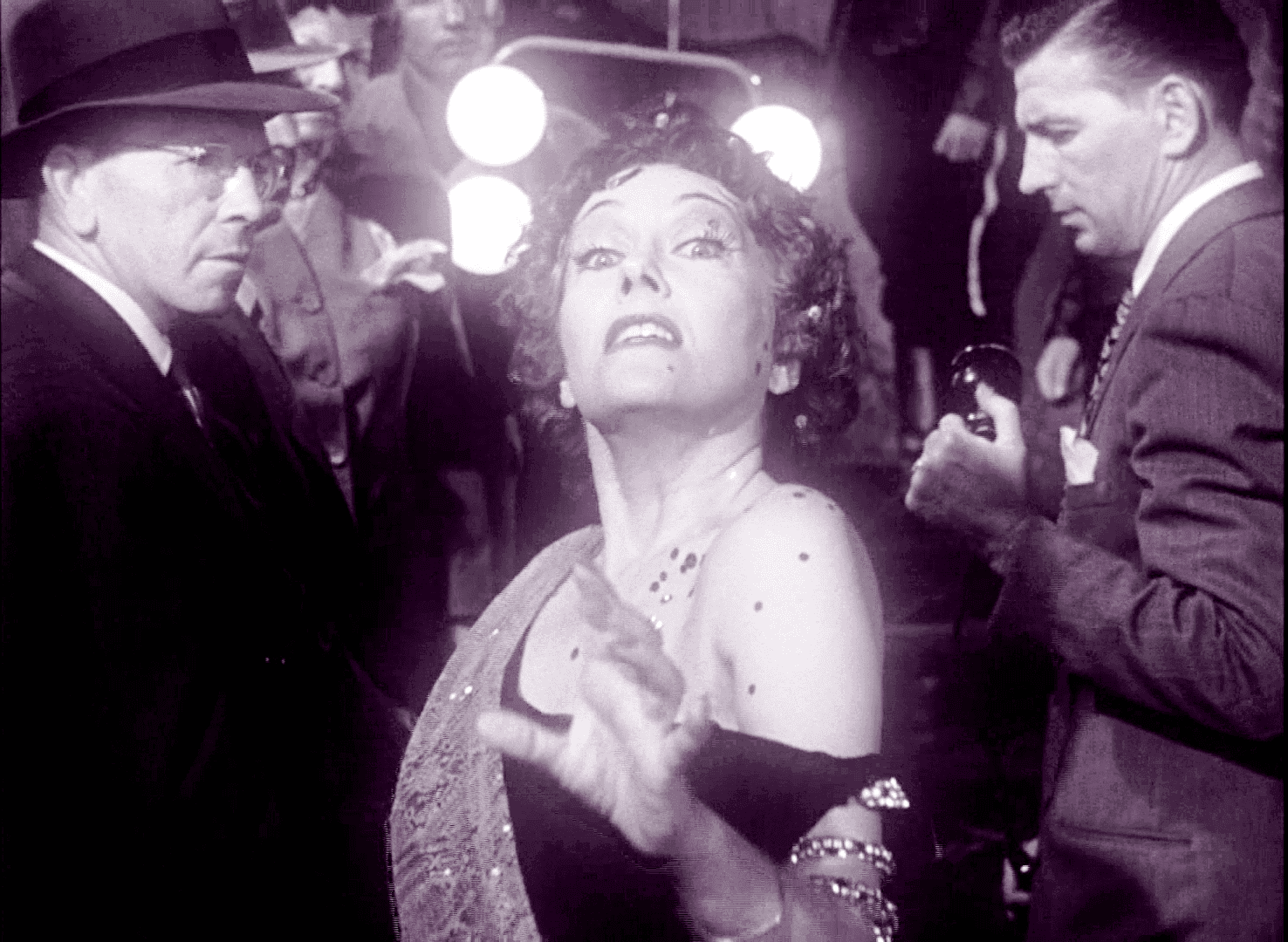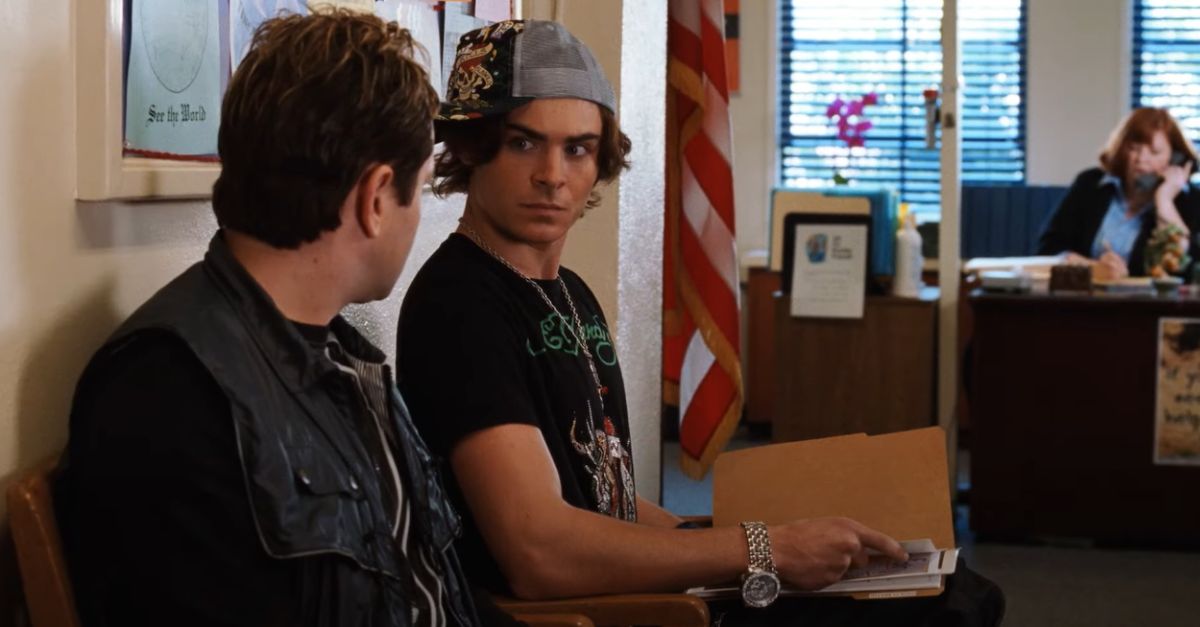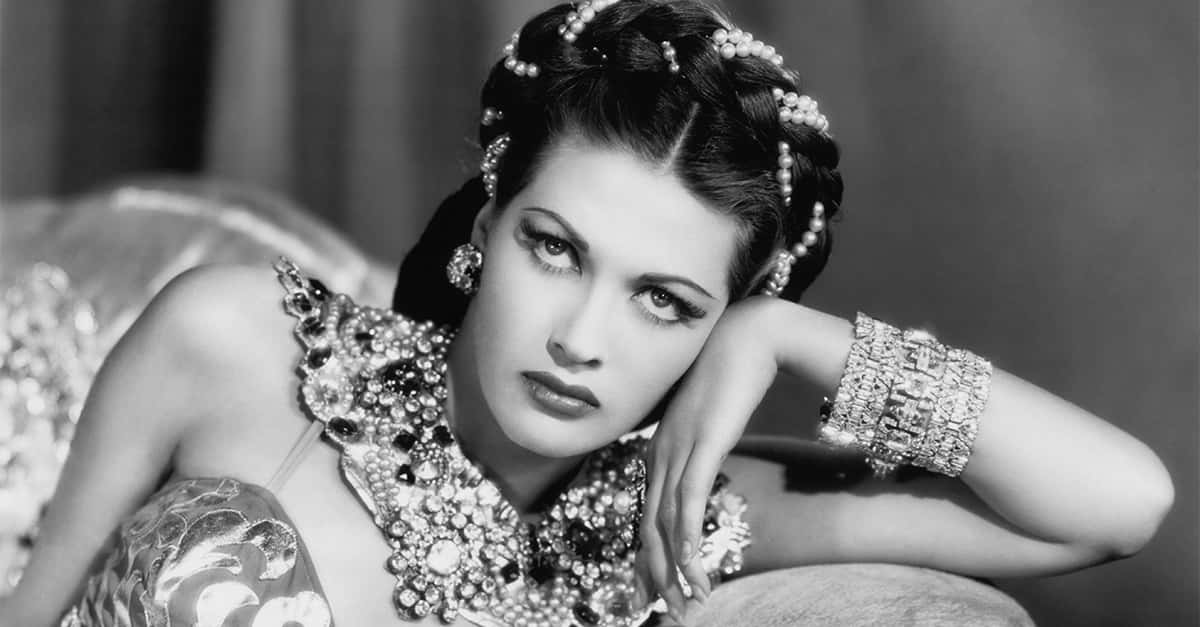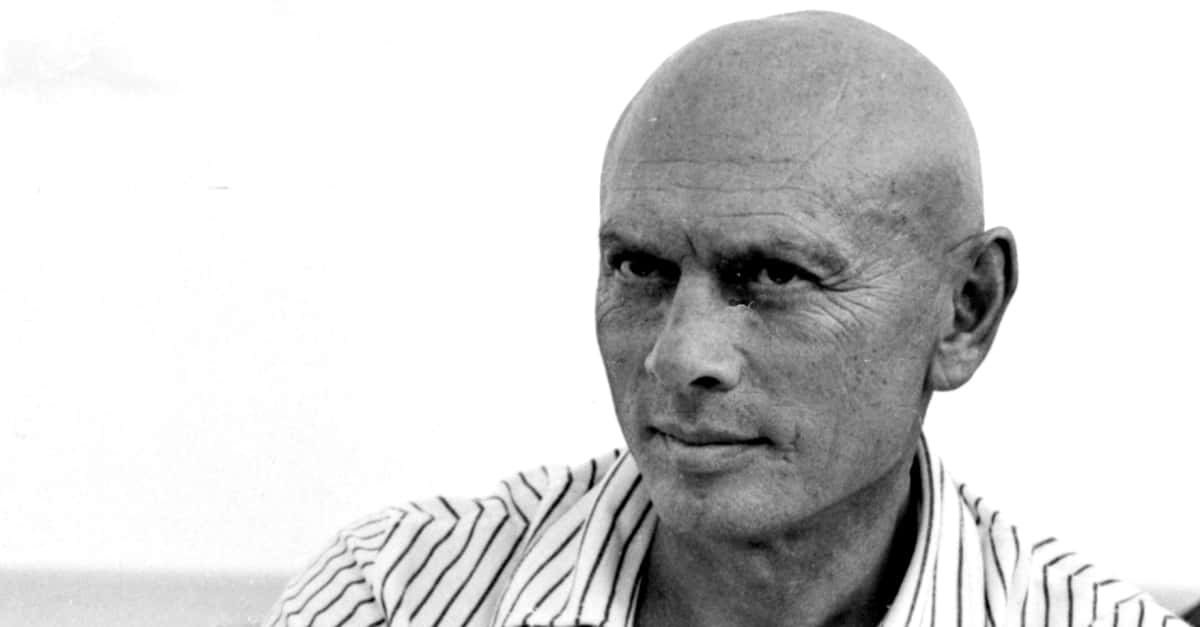Norma Talmadge, The Lost Silent Star
One of the most successful and influential actresses of the Roaring Twenties, Norma Talmadge exploded onto the scene out of nowhere and took the world by storm. In her prime, she oozed glamor and was celebrated by her legions of fans for her warm and expressive acting. It’s surprising, then, that so little is known about her. From her impoverished start to the highs of her career, the story of this silent star will be kept silent no longer.
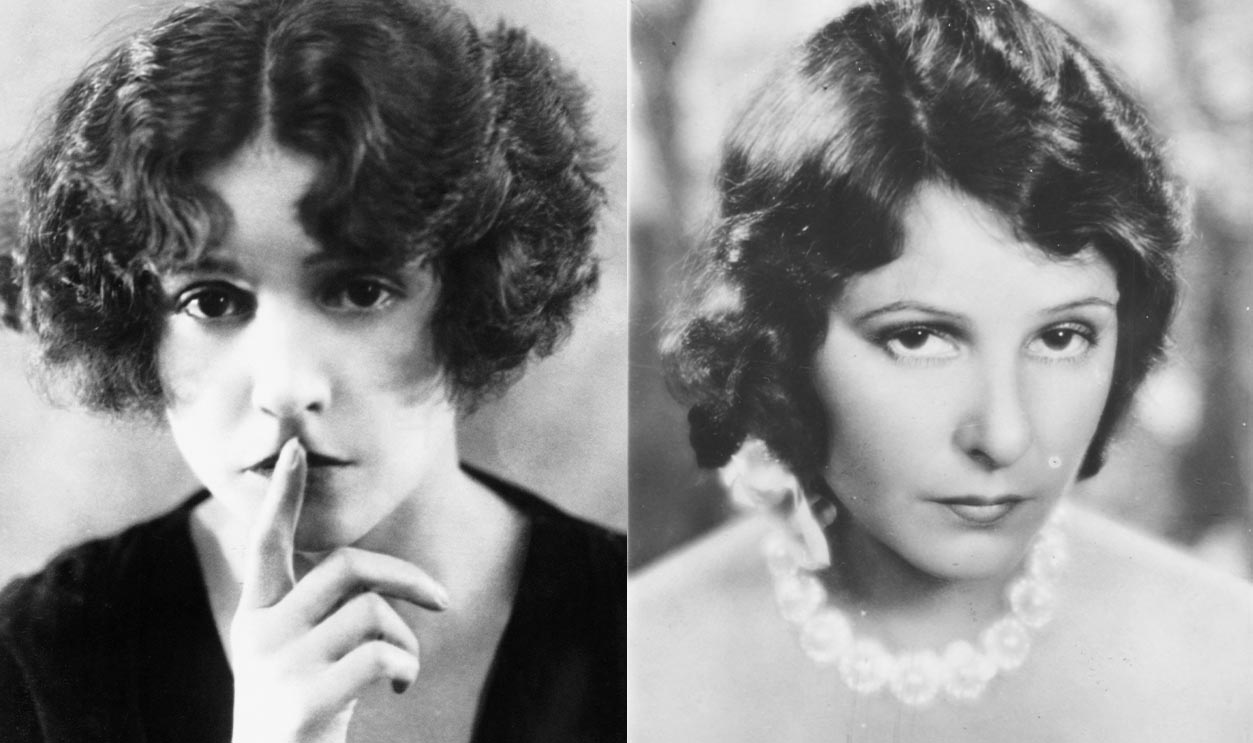
1. She Had The Worst Christmas
Born on May 2, 1894, Norma Talmadge had a rough start in life. While her mother, Peg Talmadge, was “a witty and indomitable woman,” her father, Fred Talmadge, usually had his head too deep into drink to notice much of what happened around him. One Christmas morning, Fred just up and left his family behind forever, leaving Talmadge alone with her mom and her two sisters, Natalie and Constance.
That’s where Talmadge’s life of poverty began.
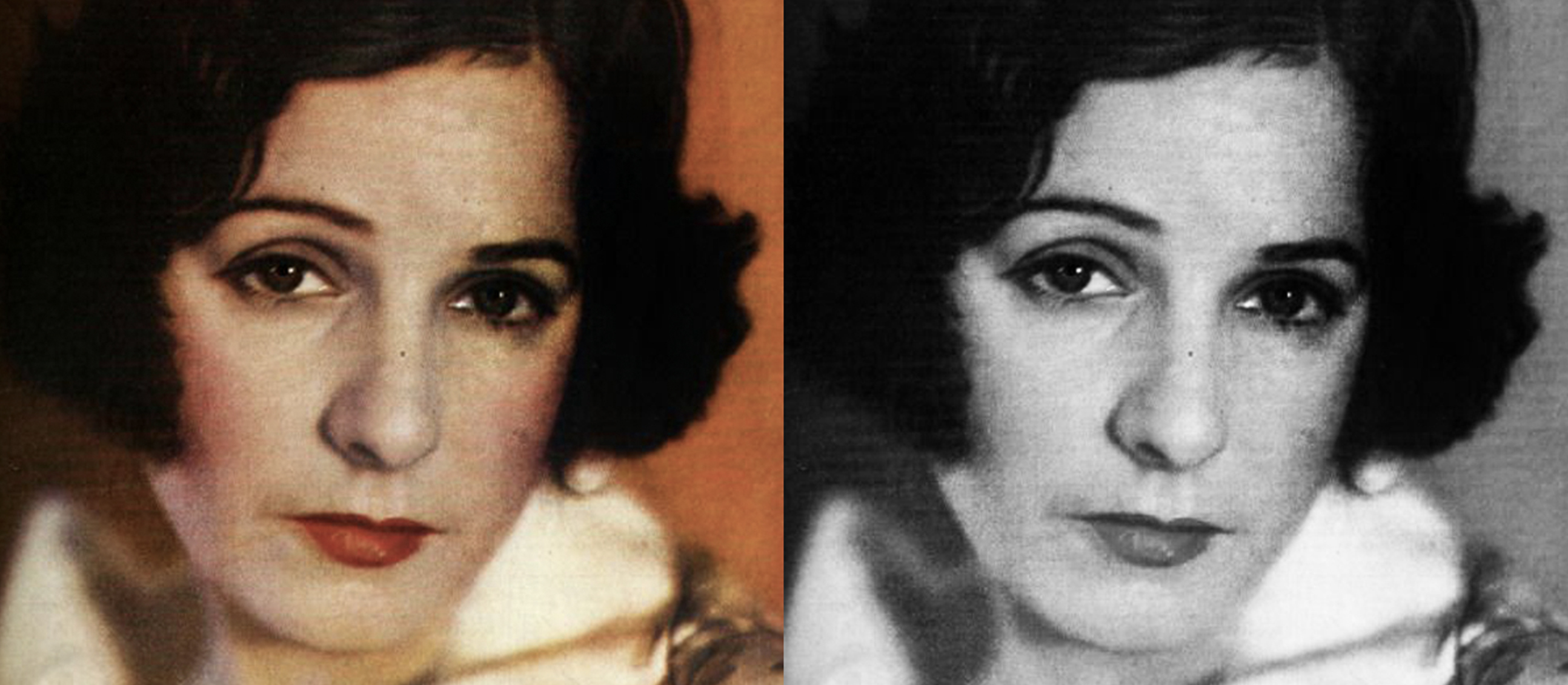
2. She Had A Tiger Mom
Despite not growing up with much, Talmadge’s mother pushed her hard. When Talmadge was 14 years old, she told her mom about a classmate who modeled for illustrated song slides. Immediately, Peg wanted her daughter to try modeling as well. After a bit of calling around, Peg got her daughter into a photographer’s studio.
Though eager to push Talmadge into stardom, things didn’t go exactly the way she planned.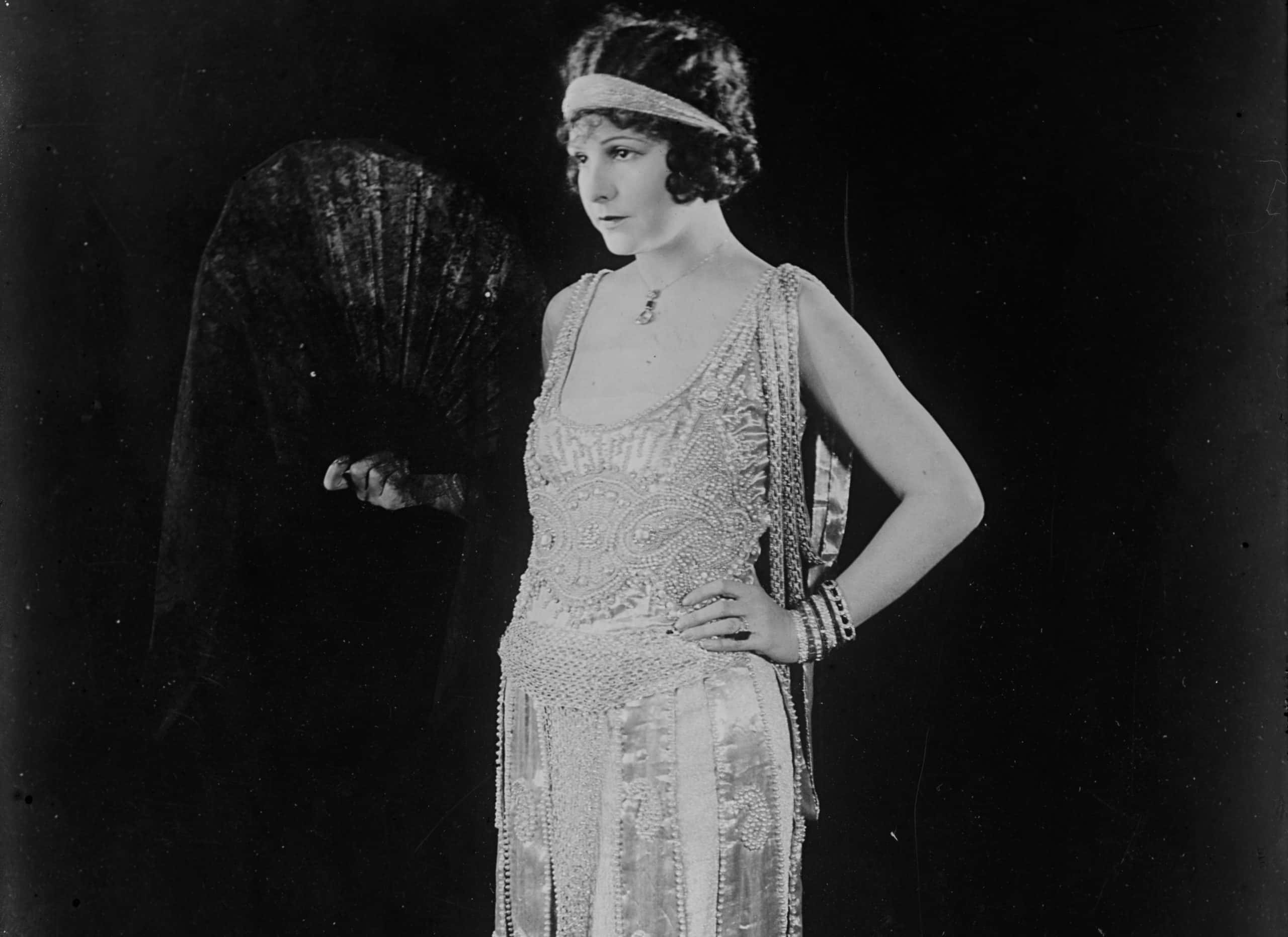 Wikipedia
Wikipedia
3. She Got Lucky
The photographer Talmadge met initially rejected her. Talmadge didn’t quite have the looks they wanted, and they had a better model coming in the next day anyway—but then, Talmadge became the victim of a wild twist of fate. As luck would have it, a call came in just as she turned to leave, saying that the photography studio’s client needed the shots immediately.
Talmadge did the shots then and there. After Talmadge’s song slide debut, Peg decided that her daughter had a future in acting.
4. They Tried To Sneak In
Just a streetcar stop away from their home stood a studio called Vitagraph Studios in Flatbush, New York. Norma Talmadge and her mother decided that this studio was perfect for Talmadge’s start into movie stardom. The two arrived and, lacking an appointment, decided to sneak in past the front gates to meet the casting director.
Despite Talmadge’s obvious tenacity, the unimpressed casting director quickly ejected them from the building. If not for another lucky break, Talmadge’s future acting career may have ended then and there.
5. She Got Her First Roles
In a stroke of luck, Beta Breuil, the scenario editor for Vitagraph Studios, happened to notice Talmadge. Taken aback by Talmadge’s beauty, Breuil took Talmadge under her wing and began securing small roles for the young girl. This, along with Talmadge and Peg continuing to hound Vitagraph Studios for movie roles, led to Talmadge playing in over 100 films between 1911 and 1912.
She started earning about $25 a week and got steady work, a welcomed relief for her struggling family. Soon, she got her first big break.
6. She Got Noticed
In 1915, Norma Talmadge starred in The Battle Cry of Peace, an anti-German propaganda film, and it got her noticed. Taking advantage of her surging fame, Talmadge signed on with National Pictures Company for a two-year contract, earning her $400 per week, an absolute killing for Talmadge and her once poverty-stricken family.
After her last film with Vitagraph Studios, Talmadge and her family moved to California, where she filmed her first movie with her new employer. She thought her dreams were about to come true…but sadly, she was wrong.
7. Catastrophe Struck
Upon arrival in California, Norma Talmadge set to work filming Captivating Mary Carstairs. It was an utter disaster. Unfortunately, it turned out that the studio didn’t actually have good financial backing, so they resorted to cheap sets and even cheaper costumes. The film completely flopped, and National Pictures Company shut down soon after.
The failure put a dark shadow over Talmadge’s acting aspirations, but thanks to her mom, it didn’t keep her down for long.
8. She Met Hollywood’s Most Important Man
The failure of Captivating Mary Carstairs put a dent into Talmadge’s flight to stardom. Peg, however, wasn’t about to let Talmadge quit just like that, so she fought tooth and nail to get Talmadge back into the game. Through her tenacity, she managed to secure a meeting between Talmadge and D. W. Griffith, the most important filmmaker of the generation.
With some reservations, Talmadge went in for the meeting, which didn’t go well.
9. He Ignored Her
Griffiths did little more than acknowledge Talmadge’s existence and was instead captivated by her sister, Constance. Constance’s sense of humor inspired Griffith, landing her a role in his latest project, Intolerance. Frustrated by this, Talmadge and her mom started to hassle Griffith daily for a role for Talmadge, even interrupting rehearsals to speak with him.
Eventually, they wore Griffith down, resulting in her next big role.
10. Critics Loved Her
To his credit, D.W. Griffith didn’t just throw Norma Talmadge into some bit part to placate her. Instead, he commissioned an entirely new film, in which she played the starring role. The Social Secretary became Talmadge’s next big movie, in which she played a young girl turned away from a job for being just too young and beautiful.
The movie ended up garnering rave reviews at the time, which should have been a cause for celebration. Instead, everything went downhill for Talmadge.
 The Social Secretary (1916), Fine Arts Film Company
The Social Secretary (1916), Fine Arts Film Company
11. Her Career Ground To A Halt
Despite the smashing success, Talmadge made a disturbing realization. She caught on to the fact that Griffith was quickly losing interest in furthering her career—she was just “not the Griffith type.” In dire straits, and with money quickly running out, Talmadge and her family decided to make their way back to Vitagraph Studios.
The work was less glamorous, but it was steady. Talmadge almost went through with this too, but fate had other ideas.
12. She Met Her Sugar Daddy
Now back in New York, Norma Talmadge decided to attend a local party. Here, she met Joseph Schenck, a slightly overweight man with a fondness for local foods, resulting in him constantly smelling like the smoked sturgeon served at his favorite local delicatessen. Despite this quirk of his, he wielded a ton of power in the Broadway and film industries, and happened to be supremely wealthy.
Talmadge saw a golden opportunity in him and took it.
13. She Impressed Him
Talmadge ended up dancing the night away with Schenck. As the two twirled their way around the dance floor, Talmadge managed to impress him, both on a personal and professional level. By the end of the evening, Talmadge secured a dinner invitation from him, and the two went their separate ways. However, Talmadge didn’t quite know what to do from here.
She didn’t have much experience in the art of seduction, so she turned to her mom for advice. The advice turned out to be terrible.
14. She Seduced Him (Kind Of)
When Norma Talmadge returned home, she mentioned the dinner date to her mom and asked for some tips on what to do. Peg gave her some truly awful advice. She told her not to seem interested. In fact, don’t even hold his hand. And amazingly, this worked. Awed by her ability to resist the smell of smoked sturgeon—er, I mean—awed by her ability to resist his charming demeanor, Schenck proposed marriage just two months later.
Talmadge accepted. This was the beginning of a beautiful, lucrative relationship.
15. Their Relationship Was Disturbing
Older than her by 19 years, Schenck truly lived up to the definition of a sugar daddy. Talmadge spent much of her spare time entertaining her new husband, while he spent much of his time throwing heaps of money at her, and her family, in return. They didn’t try to hide this aspect of their relationship either—in fact, she openly called him “Daddy.”
Totally smitten, “Daddy” proceeded to use much of his wealth to give Talmadge everything she wanted—starting with a movie career.
16. She Made Use Of His Wealth
Learning from her disastrous stint at National Pictures Company, Norma Talmadge spared no expense in her line of work. She and Schenck created the Norma Talmadge Film Corporation in 1917, where they hired the most expensive actors and the most famous directors, and used the most lavish sets and costumes. Her first film, Panthea (which is now unfortunately a lost film), became a hit, turning Talmadge into a film sensation. Talmadge didn’t stop there though.
17. She Shared The Spotlight
Despite her name being on the building, Talmadge’s new company didn’t just feature her. While she acted in many of the company’s dramatic films, the Norma Talmadge Film Corporation produced many comedic films as well. The likes of Roscoe “Fatty” Arbuckle and Buster Keaton worked for Talmadge, and their successes turned her company into a lucrative business.
Talmadge started gaining more and more fans, who started spreading some very troubling rumors about her.
18. Her Fans Fantasized About Her
In 1917, the same year her hit film Panthea released, Talmadge also starred in Poppy alongside Broadway heartthrob Eugene O’Brien. Described as “tall, blonde, [and] wavy-haired,” O’Brien was so devastatingly handsome that Talmadge’s fans actively fantasized about her and O’Brien being a secret couple. When compared to the much older Schenck, O’Brien just seemed to be a more natural partner for Talmadge.
When Schenck heard these rumors, he used it to his advantage.
19. She Played Into The Rumors
Despite the gossip being spread about them, Talmadge actually continued to star in many films across O’Brien, and Schenck actively encouraged this. Any movies that starred both Talmadge and O’Brien became an instant hit for their company, and Talmadge saw O’Brien as a colleague, not a lover (although they usually played lovers on screen). In fact, the one time that Schenck tried to switch up Talmadge’s co-star, disaster struck.
20. She Was Too Talented
Wanting to try something new, Schenck decided to switch things up—it was a massive mistake. In Talmadge’s next movie, The Secret of Storm Country, he substituted O’Brien for an actor named Niles Welch. Although Talmadge absolutely nailed her role, critics and fans attacked the disparity in looks and talent between her and Welch.
To them, it just didn’t seem realistic that someone like Welch could capture the heart of someone like Talmadge. Still, the movie did well, and the money it brought in fueled Talmadge’s expensive tastes.
21. She Dressed Like A Golddigger
Living in New York gave Norma Talmadge access to some of the most influential fashion designers of her day. In particular, she frequently used the services of a designer named Madame Francis, who specialized in designing clothing for women with sugar daddies. Talmadge had absolutely no issues with this, and frequently walked out of Madame Francis’s parlor decked out in the latest in New York fashion.
Talmadge held no illusions about where her money came from, and she never forgot about her humble beginnings either.
22. She Worked Hard
Even though her husband likely would have provided Talmadge with more than enough to live off of, Talmadge didn’t let her husband’s wealth cause her to be idle. Between 1917 and 1921, Talmadge churned out anywhere between four to six films a year. Critics celebrated the marked improvement in her acting with each film, as well as her ability to portray women that bucked stereotypes.
Her New York career continued with success after success, but a dark jealousy bubbled just beneath the surface of her achievements.
23. She Wasn’t Rich Enough
Despite doing very well for herself, Norma Talmadge was hiding a dark secret. She was deeply unhappy. Talmadge made tons of money, but she just didn’t make as much as her fellow peers, and it irked her to no end. She wanted to be the brightest and most successful star in the film industry, period. Dissatisfied with the fact that she didn’t make ridiculous amounts of money, she began turning her ire onto her husband.
The cracks in their relationship started to show.
24. He Had Particular Tastes
While Schenck remained devoted to Talmadge, their relationship had a major, and disturbing, flaw. He was a bonafide sadist in the bedroom, and Talmadge was decidedly not. Despite this, Talmadge continued to stay with Schenck—as a close family friend of hers put it, “the one thing that kept their relationship alive was the absence of indifference.” So their relationship remained safe—for now.
25. She Became A Cultural Icon
The successes kept rolling in for Talmadge. In 1922, she starred in Smilin’ Through, and it became nothing short of a cultural triumph. Considered one of the greatest romance films of the silent era, Hollywood remade Smilin’ Through twice in later years. As for Talmadge, the triumph of Smilin’ Through turned her into a cultural icon—but of course, ambitious Talmadge just kept aiming higher.
 Smilin
Smilin
26. She Moved To Hollywood
After Smilin’ Through, Talmadge made a very risky decision: to close up her New York studio and move it to Hollywood, California. The film industry there was on the edge of exploding, and it had already lured in plenty of her fellow peers. Sensing that Hollywood could present her with even more opportunities, she packed everything up and moved.
Upon arriving in Hollywood, Talmadge set to work creating more movies—but this time, they would be bigger and better than before.
27. She Glammed Things Up
Surrounded by the very best talents in the film industry, Norma Talmadge hired some of the best of directors and costume designers to create glossier, more exotic movies. These became hits with movie-goers as well through the 1920s. The successes made Talmadge even more glamorous in the eyes of her fans, who came to see her films in droves.
Despite the fame and fortune, Talmadge managed to mostly keep her head on her shoulders, which came in handy when she interacted with her Hollywood peers.
28. Hollywood Loved Her
Knowing that her raw talent could only get her so far, Norma Talmadge threw herself into the Hollywood social scene, rubbing shoulders with all sorts of famed directors and cinematographers. As she did with Schenck, she impressed members of the Hollywood elite, both with her professional experience and her personality.
Talmadge was open about her impoverished past and her sugar baby status, her no-nonsense attitude was a breath of fresh air. This got her the attention of top director Frank Borzage, leading to her biggest success yet.
29. She Hit The Pinnacle
Working together with Borzage, the two released Secrets in 1924, which surpassed even Smilin’ Through at the box office. Whereas Smilin’ Through earned $1,000,000 at the box office, Secrets earned even more at roughly $1,500,000. Secrets garnered critical acclaim as well. The two of them released several more successful movies after Secrets, but despite her professional success, things in her personal life took a nasty turn.
30. Everything Changed
During the filming of her next film, Camille, Talmadge did something that shocked even herself. She fell head-over-heels in love with her co-star, Gilbert Roland. Despite not having the power and wealth of her current husband, Roland had one thing Schenck did not: a handsome face. Her infatuation with him started causing problems between herself and Schenck, and her relationship started causing some complicated issues on set.
31. Her Mom Tried To Separate Them
Talmadge’s mom tried to separate her from her new love. Despite Talmadge’s own wealth, she still relied on her husband financially, and Peg wasn’t about to let her daughter throw away a vast fortune over an infatuation. Unfortunately—and probably to Talmadge’s delight—Peg could only keep the two lovebirds separated for short amounts of time, since Talmadge still worked with Roland.
Ironically, Schenck was the only one who handled the situation (mostly) well.
32. She Wanted A Divorce
Convinced of her love for Roland, Talmadge asked Schenck for a divorce, but her husband refused. Despite being less-than-happy with Talmadge, Schenck felt that Talmadge’s newfound affection for Roland would fade quickly with time. In fact, he was so confident that he continued to cast Talmadge and Roland together in Talmadge’s next three films, recognizing that the duo worked well together.
Unfortunately, life continued to spiral down for Talmadge.
33. Her Films Flopped
Despite having good onscreen chemistry, Talmadge’s next movies with Roland, The Dove and The Woman Disputed, flopped at the box office. By this time, the end of the silent film era loomed near, and the age of the talkies was just beginning. Silent films fell out of favor with movie-goers, and Talmadge had to switch course, fast.
Her personal life took a backseat while she concentrated on keeping her movie career afloat—but things didn’t go well on either of those fronts.
34. Her Love Life Fell To Pieces
As Talmadge prepared to transform herself from a silent movie star to an actress in the new talkies, things were falling apart behind the scenes. Still in love with Roland, Talmadge separated from Schenck. They officially stayed married, however, since Schenck still refused to grant her a divorce. Now living separate lives, the pressure to do well in the newly transformed film industry was higher than ever for Talmadge.
35. She Had A Decent Voice
From 1928 to 1929, Talmadge worked with several different voice coaches to prepare herself for the transition over to talkies. Luckily, her voice already sounded pretty good and she didn’t have an accent to suppress—this was a common stumbling block for many silent stars making their way over to acting in talkies. Despite her hard work, her next movie didn’t exactly wow movie critics.
36. Her Decline Began
Her first talkie, New York Nights, released in 1929. While considered mostly acceptable, the film didn’t make the splash that Talmadge probably hoped for. Some critics actually hated it compared to her silent films. A critic from Time magazine was particularly harsh, saying that Talmadge sounded “like an elocution pupil.”
Even Constance, her sister, advised Talmadge to quit while she was ahead. Talmadge didn’t quit, however, and her next film did even worse.
37. She Became A Relic
The following year, Talmadge took on the role of Madame du Barry in Du Barry, Woman of Passion. Unfortunately, the combination of poor directing and Talmadge’s inexperience with extensive vocal roles caused the movie to be a total failure—and things got worse from there. It didn’t help to convince her fans that she could keep up with the changing film industry either, and they quickly left her behind as a relic of the past.
This convinced Talmadge to retire, but Hollywood wasn’t quite ready to let her go just yet.
38. She Became Discouraged
Increasingly bored with filmmaking, and disheartened by the failure of her two talkies, Norma Talmadge was ready to leave the film industry behind. Unfortunately, her contract demanded at least two more movies out of her before she could leave, so Talmadge was stuck. In 1930, producer Samuel Goldwyn invited her to act in his film, The Greeks Had a Word for Them.
Talmadge accepted. However, her waning passion for movie making was taking its toll.
39. She Left Hollywood Behind
Norma Talmadge returned to New York, where stage rehearsals for The Greeks Had a Word for Them were being held. Talmadge half-heartedly showed up to a couple of the rehearsals, but she just didn’t have the same fire in her as before. A few months into rehearsals, she asked to be released from her contract. With her professional life behind her, the issues from her personal life reared their ugly heads.
40. She Had A New Lover
By 1932, Talmadge had long since lost interest in Roland. After giving it some thought, Talmadge realized that Roland was a bit too young for her, being 11 years her junior, and she probably feared he might leave her. Instead, she began seeing someone else—someone close to him. Talmadge fell for Schenck’s poker buddy, a comedian named George Jessel.
She found Jessel funny, and above all, entertaining. The scandal this relationship caused took a toll on her marriage. It was the beginning of the end.
41. She Left Her Husband
By 1934, Schenck finally granted her a divorce. Despite the ups and downs of their relationship, Talmadge remained surprisingly amicable with her now ex-husband, and he even continued to be her friend and financial advisor, securing her fortune for the rest of her life. With her divorce in hand, Talmadge moved forward with her new life.
She married Jessel just nine days later. Despite her happiness, tragedy soon struck the joyful couple.
42. She Turned To Pills
It didn’t take long for Talmadge to become bored of her new husband. His jokes quickly stopped entertaining her, and she found his attempts to keep her attention unsatisfactory. As a result, she turned to illicit substances for entertainment, and her extensive use of them led to excruciating arthritic pain in her later years.
Crippled by addiction, her marriage to Jessel lost its happy sheen. And as if this wasn’t enough, there was more trouble to come.
43. She Lost Her Mother
In 1934, tragedy struck. Talmadge’s mom—the force of nature that had compelled Talmadge’s journey to financial success and stardom—lost her battle with cancer. Tragically, Talmadge’s relationship with her mom had become rather distant, and her addiction didn’t help matters either. Fortunately for Talmadge, her mom made sure to set her up financially for life.
As a result, Talmadge never truly faced any money problems. Her marriage problems, though, were a whole other story.
44. Her Addiction Destroyed Her Marriage
Talmadge’s marriage to Jessel didn’t last for long. In 1939, her addiction and general disinterest in the relationship proved too much, and they divorced, going their separate ways. Her addiction continued to wreak havoc on her life afterward, becoming a dark cloud over her otherwise carefree retirement years. In a dark twist, her addiction led to her next relationship many years later.
45. Her Addiction Fueled Her Next Marriage
In 1946, Talmadge married Carvel James—but their marriage had a chilling dark side. James was a practicing physician in Beverly Hills, and Talmadge may have married him to secure a steady supply of prescriptions. Whether true or not, James did take care of her as she became less and less mobile due to her arthritis, and he spent long days at her bedside when the pain caused her to become completely bedridden.
The end loomed near for our aging and pain-riddled Talmadge.
46. She Was Incredibly Wealthy
In 1957, Talmadge suffered multiple strokes that left her extremely weakened. In her ill state, she caught pneumonia, and didn’t make it past Christmas Eve of that same year. She left behind an estate valued at more than $1,000,000—that’s over $9,000,000 in 2020! She now rests with her sisters at the Hollywood Forever Cemetery. However, even after her passing, rumors about her continued to spread.
47. She May Have Been A Virgin
According to one biographer, Talmadge’s mom may have had a disturbing effect on her daughter. She was a good teacher but might have done too good of a job keeping her daughter pure. Despite all her romantic scandals, things never got steamy for Talmadge in the bedroom. As a young girl, Talmadge’s mom emphasized men as evil and told her daughter that they were little more than her personal piggy bank.
Whether true or not, Talmadge’s mom certainly influenced her life heavily, and it wouldn’t be too far-fetched for this to end up being true!
48. She May Have Created The Walk Of Fame
One of the many, many rumors of how the Walk of Fame started involves Norma Talmadge. According to legend, Talmadge accidentally stepped into the wet concrete in front of the Grauman’s Chinese Theater in 1927, thus starting the tradition of celebrities stamping their hands into wet concrete right in front of the theater.
Alongside her handprint, she wrote, “Sid Dear—my wish is for your success,” in reference to Sidney Patrick Grauman, the owner of the theater.
49. Her Movie Rival Portrayed Her
Tragically, the film Sunset Boulevard, released in 1950, may have cemented an image of Talmadge as a reclusive and predatory woman in today’s cultural consciousness. In the movie, the character of Norma Desmond was likely modeled after our Norma, and was portrayed by Gloria Swanson, Talmadge’s rival back in her movie-making days.
Swanson played up the erratic behavior of Norma Desmond, and this portrayal overrode most of what the public remembers of Norma Talmadge today.
50. Many Of Her Movies Are Lost
Despite being a success in her heyday, many of Talmadge’s films are unavailable for viewing today. Out of 51 of her movies, film buffs saved 32 , while 10 are only partly preserved. The rest are lost to time. Rumors say that her ex-husband, Schneck, intentionally allowed them to deteriorate. Others say this is just the result of a general disdain towards melodramas, especially those that feature women.
Luckily, the movies that did survive continue to be a testament to her incredible talent.

